A gable patio roof transforms your outdoor living space into an architectural masterpiece that seamlessly blends functionality with timeless appeal. The gable roof design is a timeless choice that adds character and dimension to your outdoor space. It features a peaked structure that provides excellent ventilation and natural light, works well with various home styles from traditional to modern, and is ideal for creating a spacious and airy feel. This peaked roof not only creates an expansive feel but it also blends seamlessly with a variety of architectural styles. Whether you're seeking shelter from harsh weather conditions or creating an elegant entertaining area, gable roofs offer unmatched versatility in design possibilities. From classic triangular profiles to innovative cross-gable configurations, these structures provide excellent drainage, increased headroom, and superior airflow compared to flat alternatives. Gable roofs provide numerous benefits, including increased attic space, better ventilation, and aesthetic versatility that can elevate your home's architectural character. Modern homeowners are embracing gable patio designs that incorporate sustainable materials, smart technology integration, and multi-functional spaces that extend living areas outdoors while maintaining architectural harmony with existing home structures.
1. Traditional Cedar Beam Gable Patio
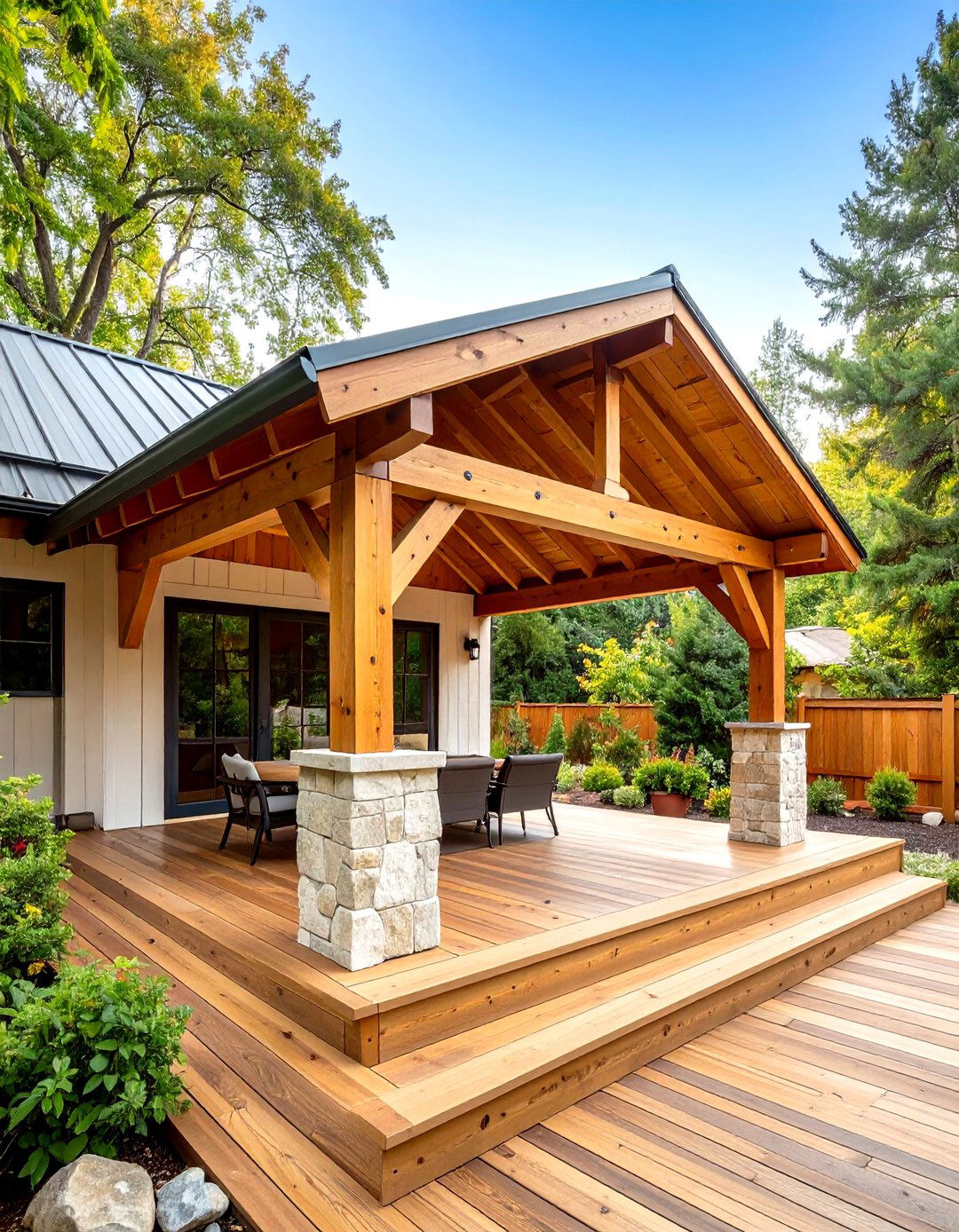
What makes a patio feel like a natural extension of your home's character? A gable roof with cedar beams and columns is accented with Austin white limestone for the column bases, creating warmth through natural wood tones. This classic approach features exposed cedar rafters that showcase the natural grain patterns while providing structural integrity. The triangular roofline allows rainwater to shed efficiently while creating dramatic height variations that make spaces feel larger. Cedar's natural resistance to moisture and insects makes it ideal for outdoor applications. White limestone accents at column bases ground the structure and tie into traditional home foundations. Metal roofing in complementary earth tones enhances the rustic aesthetic while providing long-term durability. This design works exceptionally well with ranch-style homes, craftsman architecture, and farmhouse designs where natural materials create authentic outdoor living environments.
2. Modern Steel Frame Gable Structure

Can sleek materials transform traditional gable shapes into contemporary statements? Industrial-inspired steel framing creates clean lines that emphasize geometric precision over ornate detailing. Powder-coated aluminum members resist corrosion while maintaining sharp angles that complement modern home facades. The minimalist approach features flat metal roofing in charcoal or bronze finishes that reflect current architectural trends. Large spans between support posts maximize open space underneath while maintaining structural integrity. Integrated LED lighting systems within the frame members provide ambient illumination for evening entertainment. This design pairs beautifully with concrete floors, glass railings, and contemporary outdoor furniture. The industrial aesthetic works particularly well with modern homes featuring large windows, clean facades, and minimal landscaping that emphasizes architectural form over decorative elements.
3. Asymmetrical Cross Gable Design

Why settle for symmetrical designs when dynamic angles create visual interest? This innovative approach combines two gable sections at different heights and angles to create architectural drama. The primary gable covers the main seating area while a secondary smaller gable shelters a cooking zone or bar area. Different roofing materials on each section add textural contrast - perhaps metal on the larger section and tile on the smaller accent area. Varying column heights and placement create rhythm across the structure while maintaining functional zones. Strategic lighting placement highlights the geometric interplay between roof sections. This design accommodates larger patios where multiple activity areas require different coverage levels. The asymmetrical composition works well with contemporary homes that feature varied rooflines and mixed materials in their architectural vocabulary.
4. Hip-Gable Hybrid Combination

How can you capture benefits from multiple roof styles in one design? This sophisticated approach combines hip roof stability with gable roof drama by incorporating both elements strategically. The hip portions provide wind resistance while gable ends create vertical space and architectural interest. Mixed roofing materials distinguish between sections - perhaps clay tiles on hip areas and metal on gable ends. Strategic placement of the gable portions can frame specific views or architectural features of the main house. The combination offers superior weather protection while maintaining the open feel that makes gable roofs so appealing. Column placement follows the structural requirements of each roof type, creating interesting spacing variations. This hybrid approach works exceptionally well in areas prone to severe weather where maximum protection is essential without sacrificing aesthetic appeal.
5. Gambrel Barn-Style Patio Cover
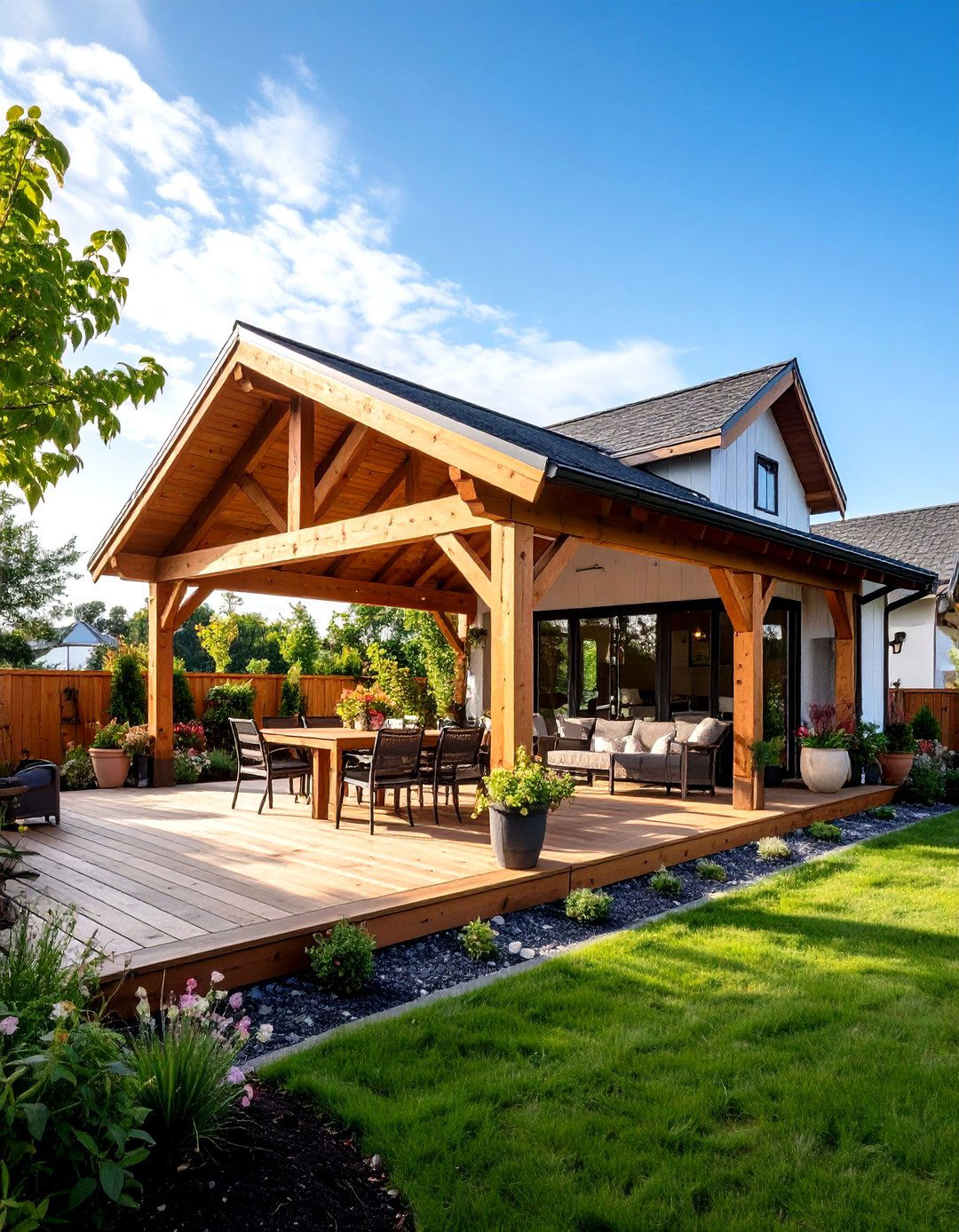
What if your patio could evoke the charm of countryside barns while providing modern functionality? Gambrel roofs are commonly associated with Dutch building traditions and barns, they break each sloping roof section into two parts—one close to the ridge that is relatively flat and one closer to the eaves that drops down steeply. This distinctive double-slope design maximizes headroom while creating unique interior proportions. Wood shingle roofing enhances the rural aesthetic while providing excellent weather protection. Exposed beam construction showcases traditional carpentry techniques that add visual interest to the ceiling plane. The gambrel profile works particularly well for larger patios where maximum coverage is desired without overwhelming the space. Strategic dormer windows can be incorporated to bring additional light into covered areas. This design complements farmhouse, colonial, and rustic home styles where traditional American architectural elements are celebrated and integrated into outdoor living spaces.
6. Dutch Gable Patio Extension
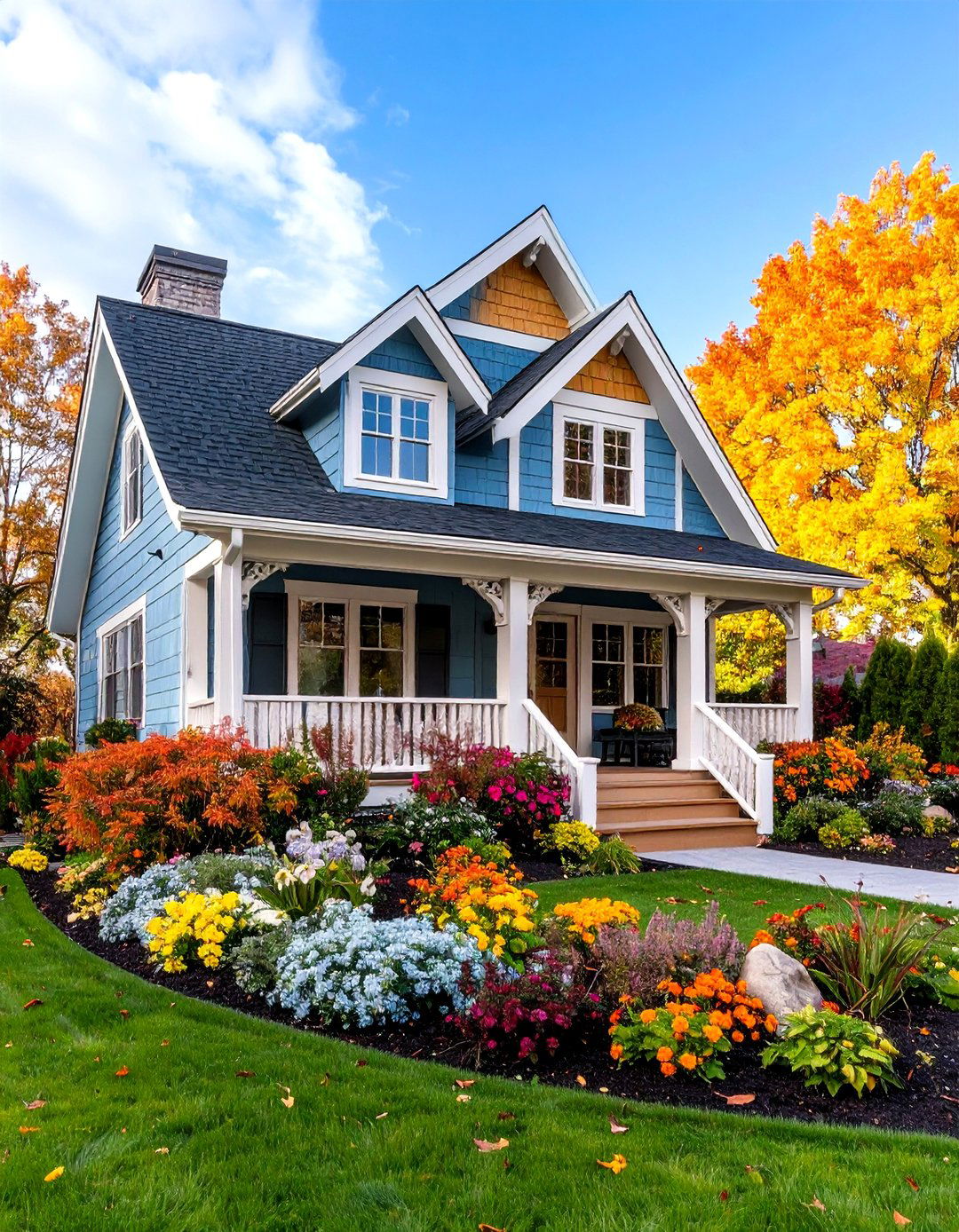
Can you add sophistication to basic gable forms through decorative details? Dutch Gable: A small gable roof placed atop a traditional hip roof for aesthetics and additional attic space. This elegant variation features a small gable element mounted on a hip roof section, creating visual interest through layered geometry. The decorative gable portion can incorporate different materials such as stone, stucco, or distinctive siding that complements the main house. Ornate brackets, carved details, or custom millwork in the gable section add personality without overwhelming the overall design. The hip roof base provides excellent weather protection while the gable accent creates architectural focal points. This approach works well when you want to maintain a relatively low profile while adding distinctive character. Window elements within the gable section can provide natural light or simply serve as decorative features that enhance the overall composition.
7. Cantilever Gable Overhang Design

How do you create dramatic architectural statements while maximizing covered space? This bold design extends the gable roof beyond its support structure through engineered cantilever construction. The overhanging sections provide additional coverage without requiring posts in critical areas, maintaining open sight lines and circulation patterns. Structural steel beams concealed within the roof assembly enable these extended spans while maintaining safety standards. The dramatic overhang creates interesting shadow patterns throughout the day while providing superior weather protection. This design works particularly well for poolside applications where maximum coverage is desired without obstructing views. LED strip lighting integrated into the overhang edges provides evening illumination while emphasizing the floating effect. Modern homes with strong geometric elements benefit from this approach where bold architectural moves complement the overall design philosophy. Careful engineering ensures long-term structural integrity while achieving visual drama.
8. Shed-Style Angled Gable Roof
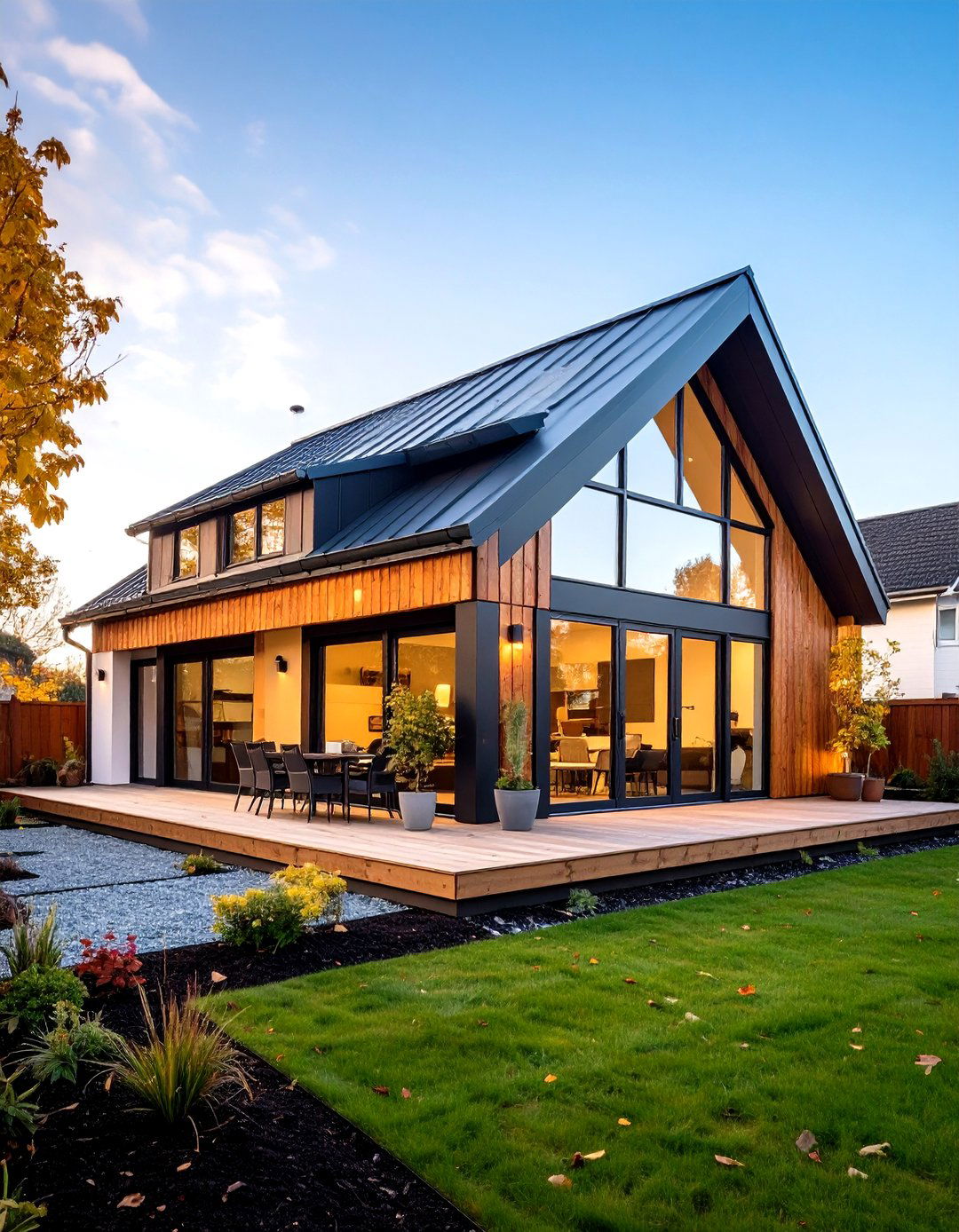
What happens when you blend gable and shed roof characteristics for unique functionality? This contemporary interpretation features one side significantly higher than the other, creating distinctive angular profiles that complement modern home designs. The pronounced slope enhances water drainage while creating interesting interior volume variations. Clerestory windows along the high side bring natural light deep into covered areas while maintaining weather protection. Metal roofing emphasizes the clean lines while providing long-term performance in various climates. The angled design works exceptionally well for sites with prevailing wind patterns where the high side can block weather while the low side maintains views. Integrated gutters and downspouts handle the increased water flow efficiently. This approach suits contemporary homes with mixed rooflines where variety in outdoor structures enhances rather than competes with architectural themes. Minimalist details keep focus on the strong geometric form.
9. Curved Gable Roof Profile
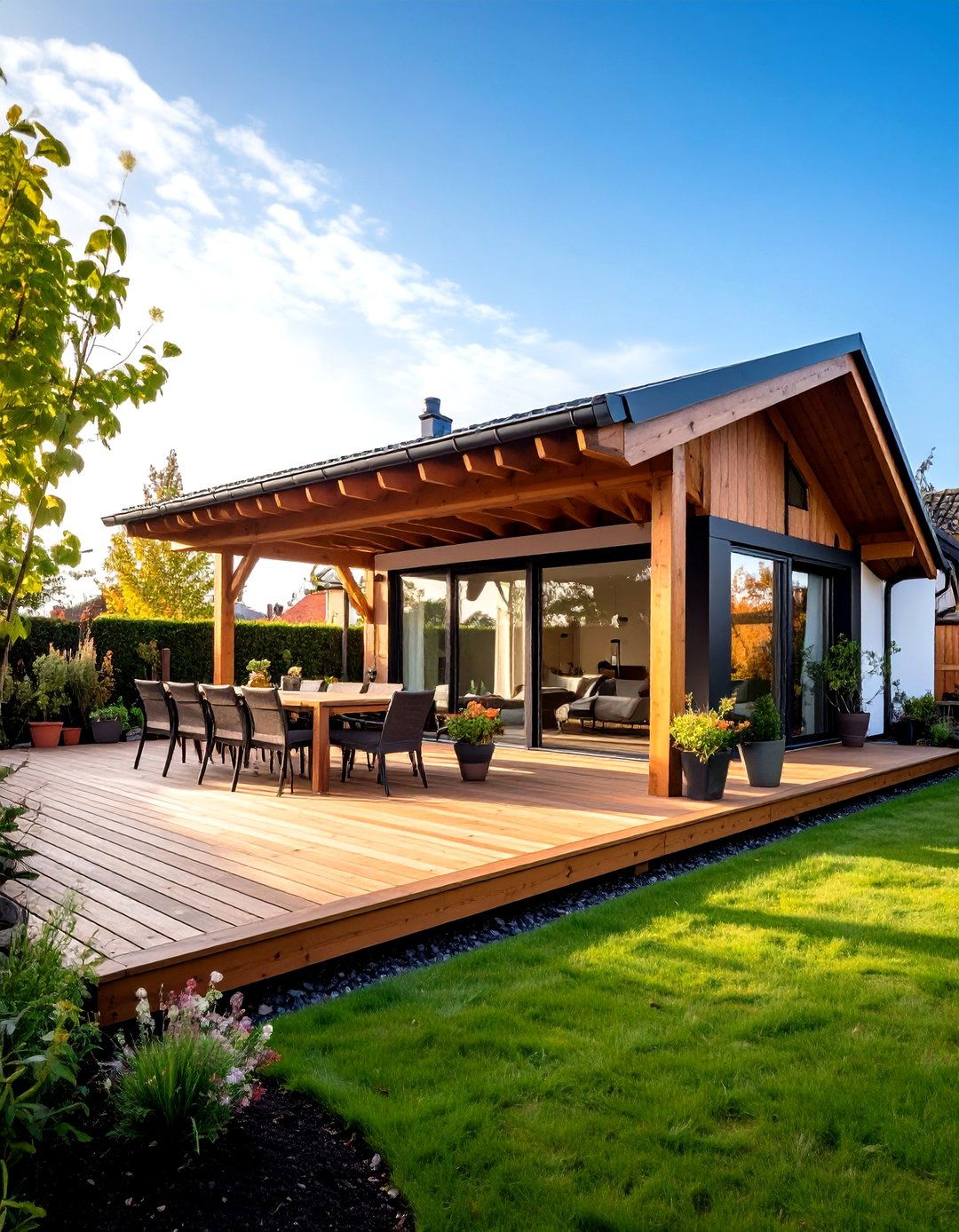
Can traditional gable shapes incorporate curved elements for softened aesthetics? This innovative design features gentle curves along the roof edges that create more organic shapes while maintaining the basic gable structure. Laminated wood beams or steel members bent to specific radii create the curved profiles that soften harsh angles. The curved elements can be subtle for understated elegance or pronounced for dramatic impact. This approach works particularly well in garden settings where natural curves complement landscaping elements. Special attention to flashing and waterproofing ensures weather-tight performance despite the complex geometry. The curved gable profile creates unique interior spaces with flowing ceiling lines that feel more organic than traditional angular construction. Modern manufacturing techniques make curved structural elements more accessible while maintaining cost-effectiveness. This design complements homes with curved architectural features, arched windows, or rounded landscape elements where geometric consistency enhances overall site design.
10. Multi-Level Stepped Gable Design
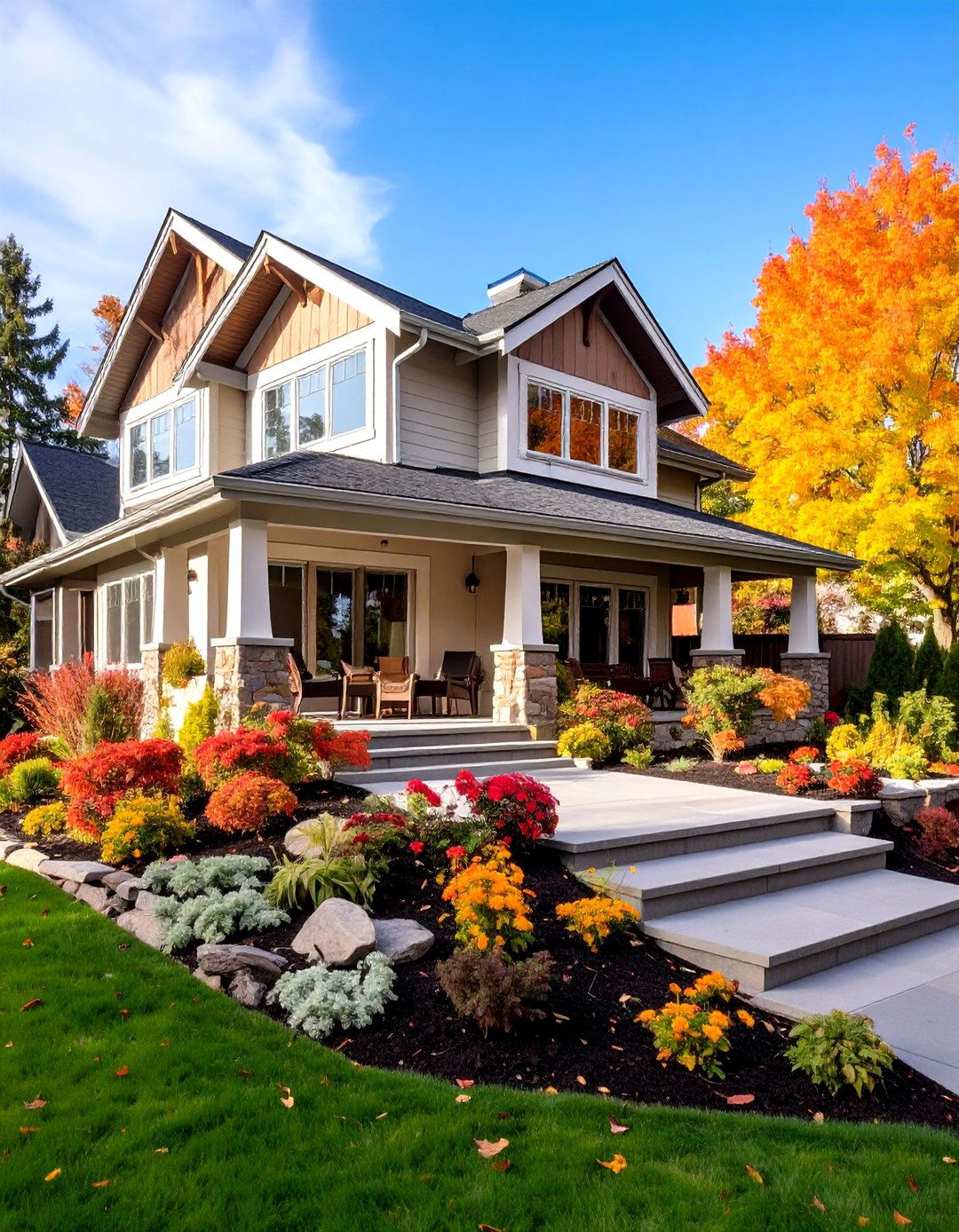
How can varying heights create dynamic outdoor environments within single structures? This sophisticated approach incorporates multiple gable sections at different elevations to create terraced coverage levels. Each level serves specific functions - perhaps a higher section over dining areas and lower sections over lounging spaces. The stepped configuration allows natural light to penetrate between levels while maintaining weather protection where needed. Different roofing materials on each level create visual distinction while maintaining overall design coherence. Strategic landscaping between levels can incorporate planters, water features, or lighting elements that enhance the stepped effect. This design accommodates sloped sites particularly well where the structure can follow natural grade changes. The multi-level approach creates intimate spaces within larger covered areas while maintaining flow between zones. Column placement follows the stepped configuration, creating rhythm and supporting the varied roof heights effectively.
11. Glass-Paneled Gable Sunroom
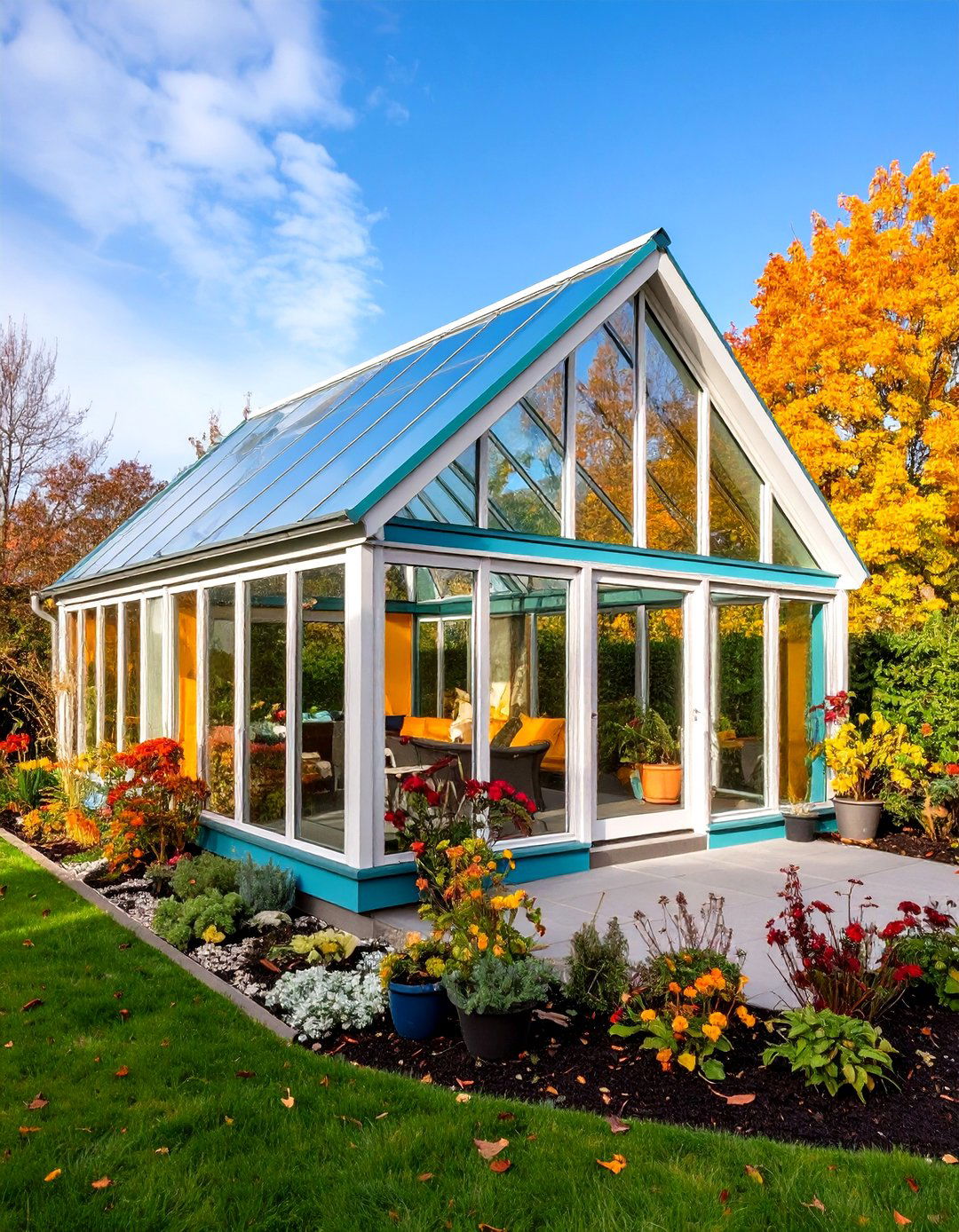
Why choose between open patios and enclosed spaces when you can have both? This versatile design incorporates removable or operable glass panels within the gable framework, creating year-round functionality. Large glass sections maximize natural light while providing weather protection when needed. The gable structure provides the framework for various glazing options - fixed panels, sliding sections, or completely removable systems. Structural glazing techniques create clean lines without bulky frames that could compromise the elegant gable profile. Temperature control becomes possible through strategic ventilation and potential heating/cooling integration. This approach transforms seasonal patios into year-round rooms while maintaining connection to outdoor environments. The glass elements can incorporate energy-efficient coatings and insulation values appropriate for local climate conditions. This design works well where zoning restrictions favor enclosed structures or where maximum weather protection is desired without sacrificing natural light and outdoor connection.
12. Stone Column Gable Pavilion
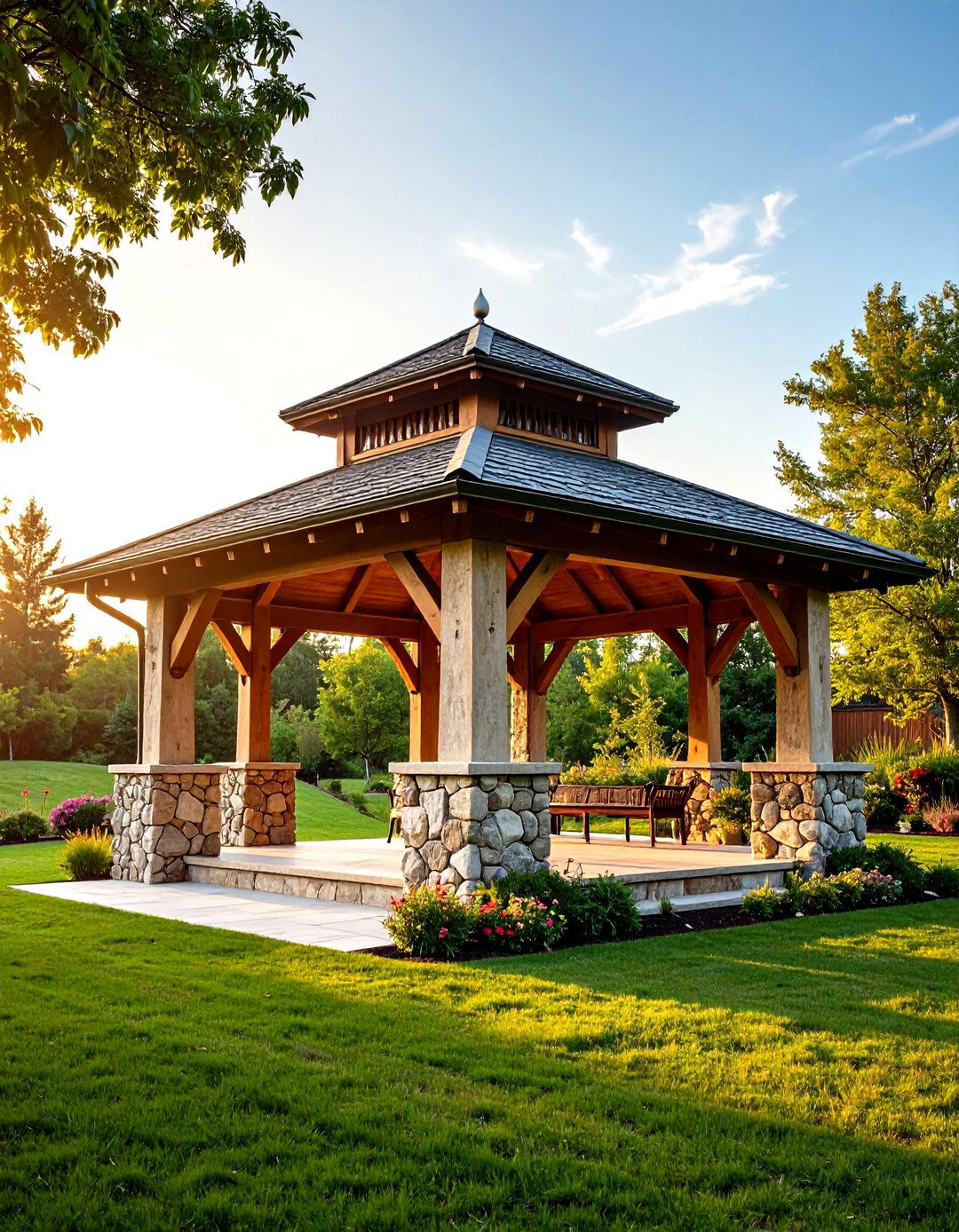
What creates the perfect balance between rustic charm and structural permanence? Natural stone columns support elegant gable roofing to create pavilion-style outdoor rooms with substantial presence. Local stone materials tie the structure to regional architecture while providing excellent durability and minimal maintenance requirements. The heavy stone base contrasts beautifully with lighter roof materials, creating visual balance through material weight distribution. Mortar joints and stone selection can be customized to match existing home materials or complement landscape hardscaping elements. The substantial stone columns enable larger spans between supports, maximizing open space underneath the gable roof. Integrated planters within stone column bases can incorporate landscaping directly into the structural elements. This design approach works particularly well in established landscapes where permanent structures blend with mature plantings. The combination of stone and wood or metal roofing materials creates rich textural combinations that age gracefully over time.
13. Pergola-Gable Hybrid Structure
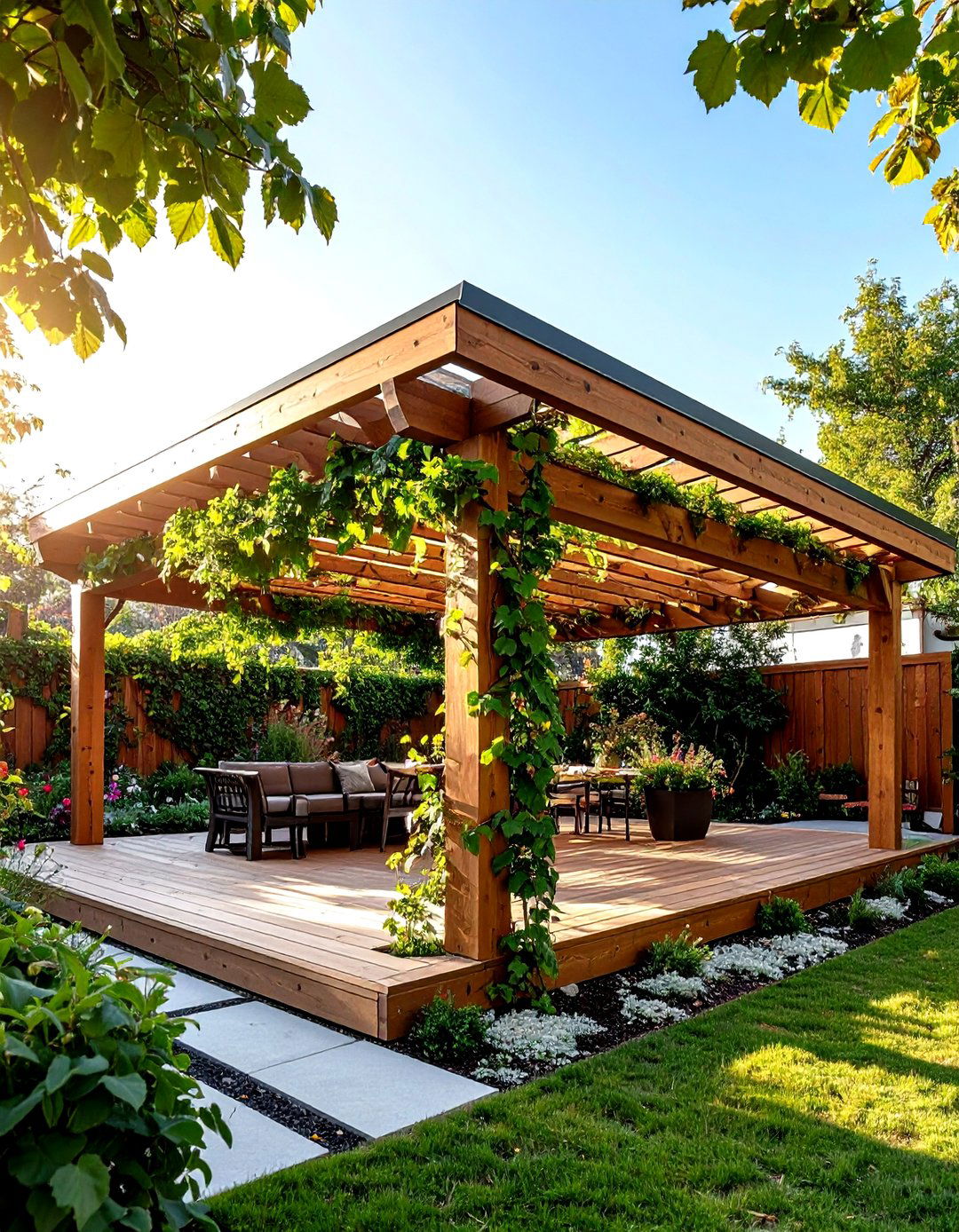
Can you combine the openness of pergolas with the weather protection of solid roofs? This innovative design incorporates both solid roofing and open pergola sections within the same gable framework. Strategic placement of solid and open areas creates microclimates within the covered space - full protection for dining and partial shade for lounging. The pergola sections can support climbing vines or hanging plants that enhance the natural environment. Transition areas between solid and open sections require careful detailing to maintain weather integrity while creating seamless flow. This approach allows for greater flexibility in space usage while maintaining the strong architectural presence of gable roofing. Materials can vary between sections - perhaps metal roofing over solid areas and wood slats over pergola sections. The hybrid design accommodates various sun and shade preferences while maintaining overall structural coherence through consistent gable profiles and support systems.
14. Pitched Metal Standing Seam Gable
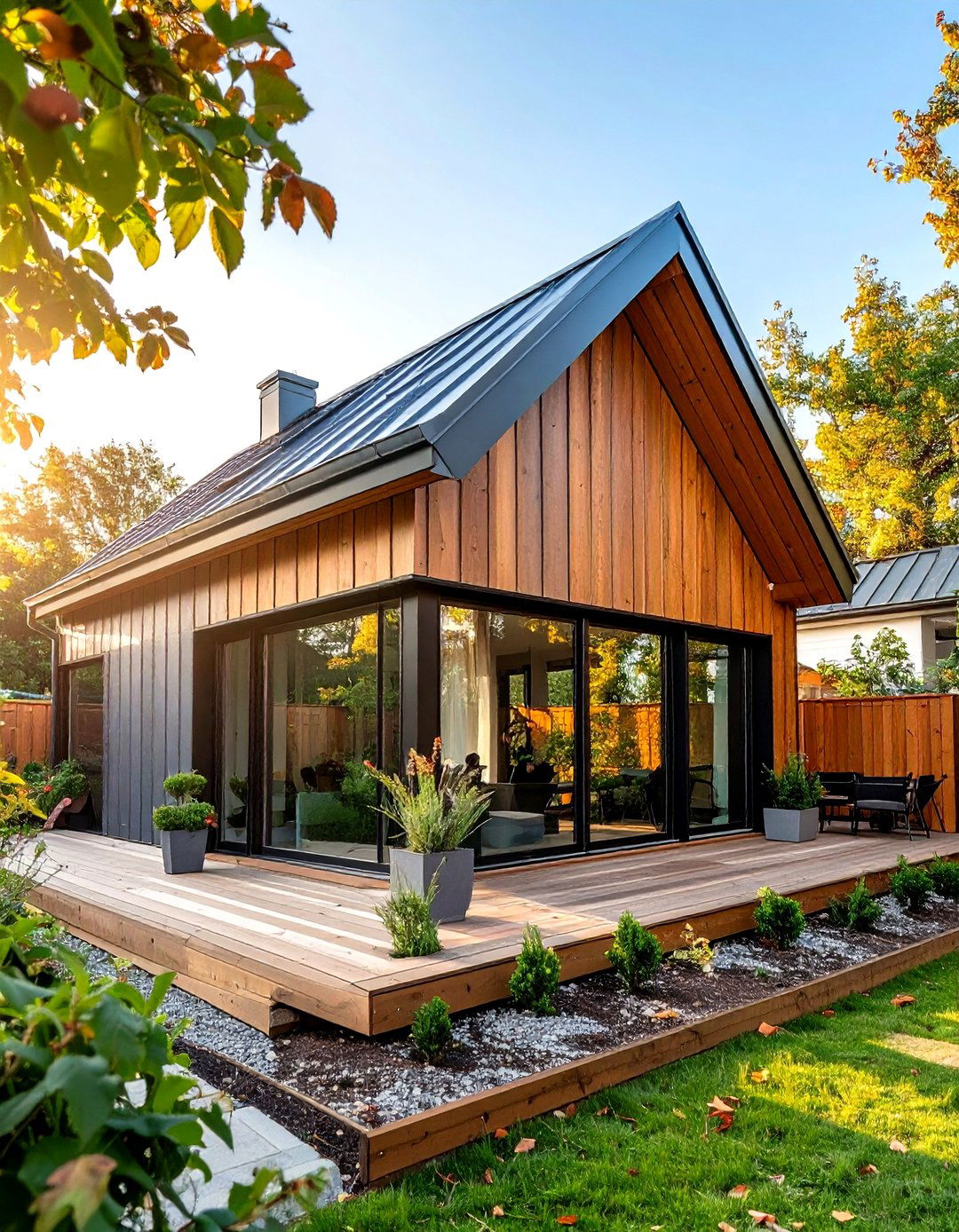
How do commercial roofing materials translate into residential patio applications? Standing seam metal roofing creates clean, modern lines while providing superior weather protection and longevity. The pronounced vertical seams emphasize the gable's angular geometry while offering excellent thermal expansion accommodation. Various metal finishes from galvanized steel to copper provide different aesthetic options that age uniquely over time. The metal material enables steeper pitches than some alternatives, creating more dramatic interior volumes and better water drainage performance. Integrated snow guards and ice dam prevention systems make this option particularly suitable for cold climates. The industrial aesthetic complements contemporary home designs while providing practical benefits that justify the material selection. Concealed fastener systems maintain clean appearances while ensuring long-term weather tightness. This approach works well where low maintenance and maximum durability are priorities without sacrificing architectural sophistication and visual interest.
15. Timber Frame Exposed Beam Gable
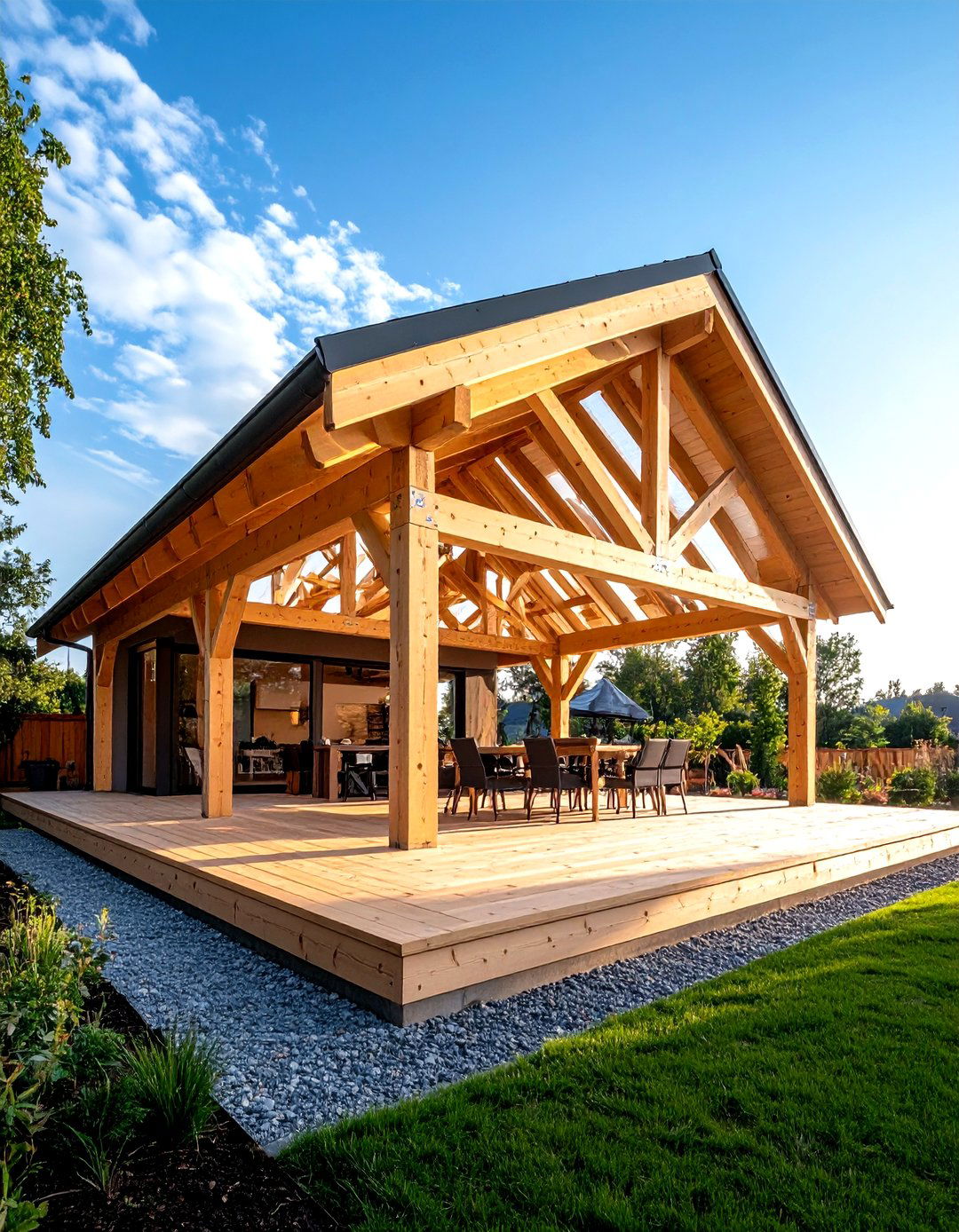
What happens when structural elements become decorative features that define space character? This traditional approach showcases heavy timber construction where structural beams remain exposed and become primary design elements. Large timber members create dramatic scale appropriate for substantial patio spaces while celebrating traditional building craftsmanship. The exposed structure creates rhythm and pattern across the ceiling plane while providing natural material warmth. Various wood species from cedar to oak offer different grain patterns, colors, and weathering characteristics. Traditional joinery techniques using mortise and tenon connections add authentic detail that celebrates woodworking craftsmanship. The heavy timber approach enables large spans between supports while creating substantial architectural presence. This design works particularly well with rustic, craftsman, or mountain home styles where natural materials are featured prominently. The exposed beam ceiling creates opportunities for hanging plants, lighting fixtures, or ceiling fans that enhance functionality while maintaining authentic character.
16. Contemporary Flat-Top Gable Design
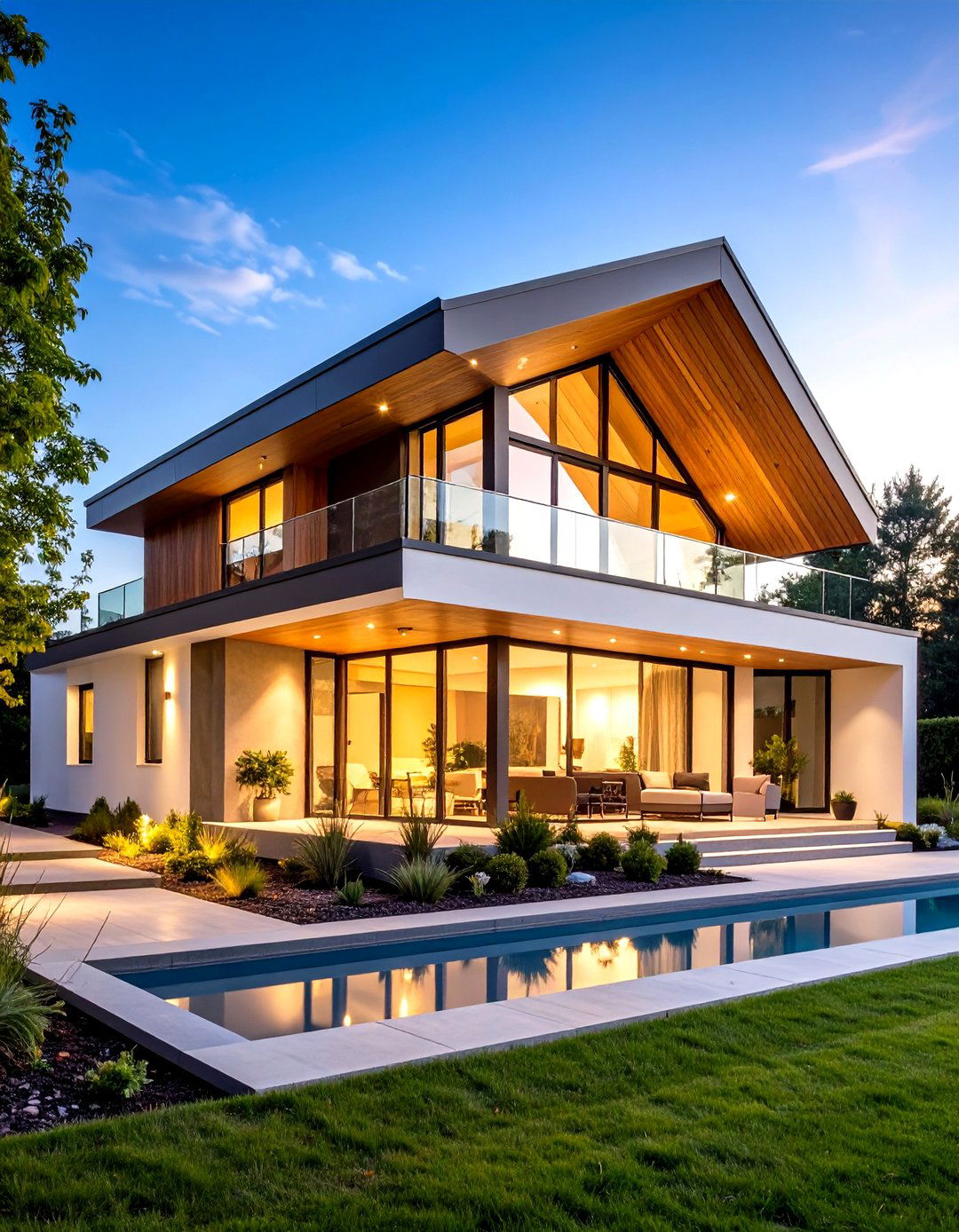
Can modern interpretations of traditional gable forms create fresh architectural expressions? This innovative approach truncates the traditional peaked gable to create flat-topped profiles with contemporary appeal. The modified geometry maintains gable proportions while incorporating modern flat roof benefits like integrated drainage and potential rooftop access. Hidden drainage systems within the flat section handle water removal without visible gutters that could compromise clean lines. The flat top provides opportunities for integrated solar panels, green roof systems, or rooftop terraces that maximize space utilization. This design works particularly well with modern homes featuring mixed rooflines and contemporary materials. Strategic lighting within the flat section can create unique evening effects while maintaining daytime architectural clarity. The modified gable profile creates interesting interior spaces with varied ceiling heights that feel both traditional and contemporary. Careful attention to waterproofing ensures performance despite the complex geometry.
17. Retractable Roof Gable System
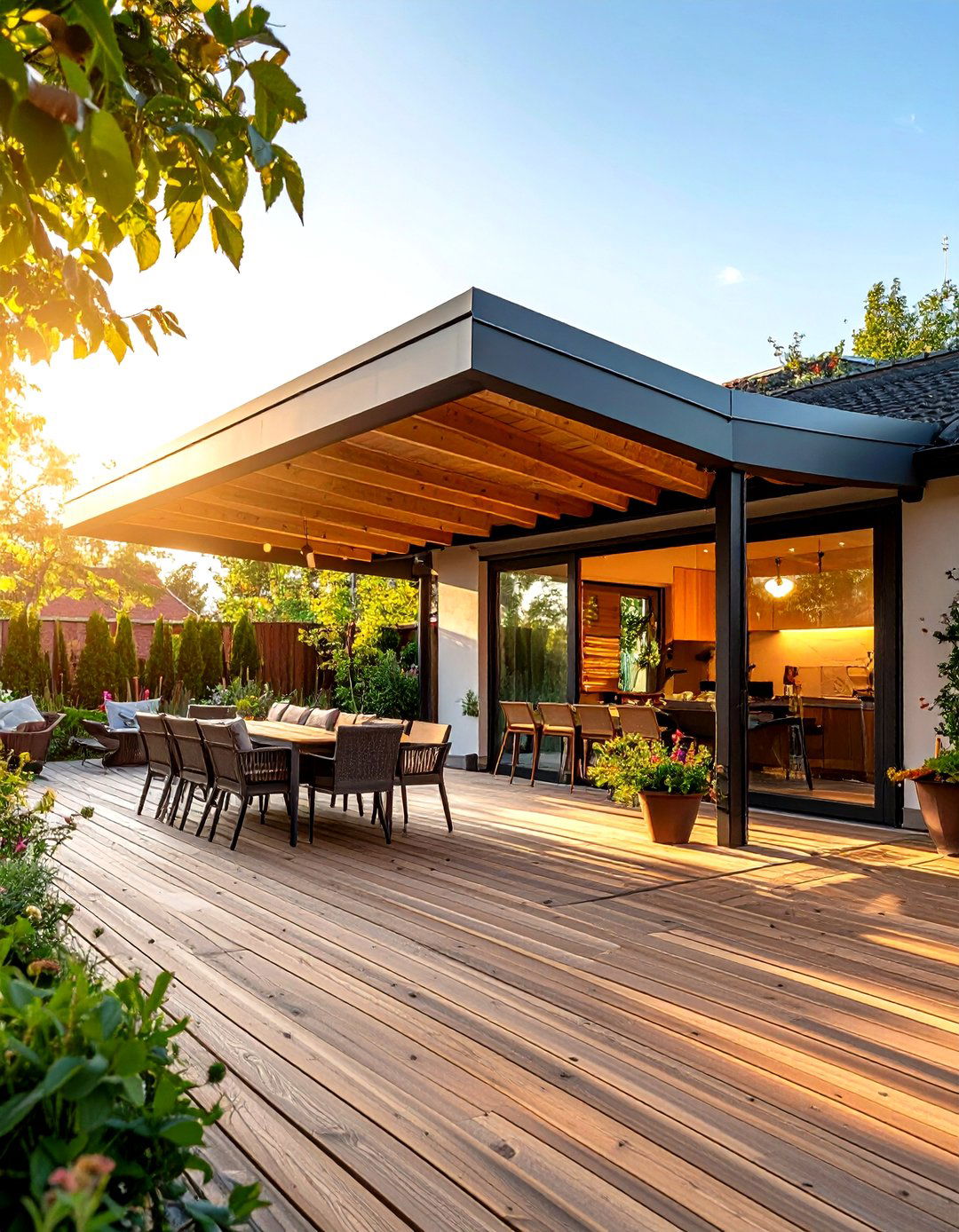
Why accept static coverage when adaptive systems can respond to changing conditions? This high-tech approach incorporates motorized retractable roof panels within traditional gable frameworks. The mechanical systems allow portions of the roof to open for stargazing or close for weather protection. Solar-powered motors and weather sensors can automate the system responses while manual controls provide user override capabilities. The retractable sections require precise engineering to maintain weather integrity in closed positions while operating smoothly through opening cycles. This design creates the ultimate flexible outdoor space that adapts to user preferences and weather conditions. The technology integrates discretely within traditional gable profiles, maintaining architectural character while adding modern functionality. Fabric or rigid panel options provide different aesthetics and performance characteristics. This approach works well for entertainment areas where maximum flexibility enhances the user experience while maintaining the classic appeal of gable architecture.
18. Split-Level Gable Patio Configuration
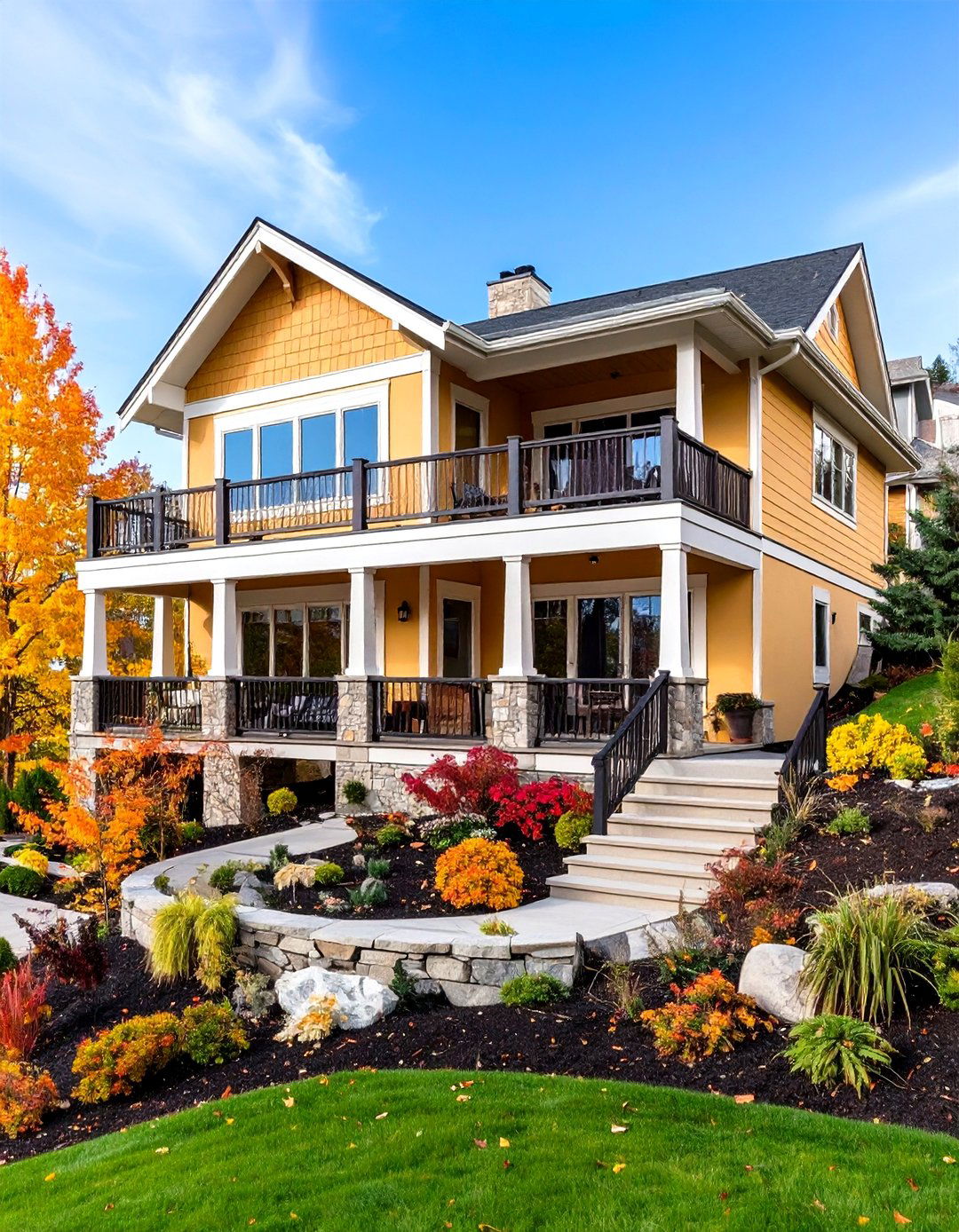
How can elevation changes become design opportunities rather than construction challenges? This thoughtful approach incorporates multiple floor levels within the gable roof structure, creating terraced outdoor rooms with distinct characters. Upper levels might serve dining functions while lower levels accommodate lounging or entertainment areas. The gable roof structure unifies different elevations while maintaining weather protection across all levels. Strategic railings and planters between levels create safety barriers while enhancing the terraced aesthetic. Lighting integration highlights the level changes while providing functional illumination for evening use. This design works particularly well on sloped sites where the structure can follow natural grade changes. The multi-level approach creates intimate spaces within larger covered areas while maximizing usable space. Careful attention to drainage ensures water management across different elevations while maintaining structural integrity. Materials can vary between levels to distinguish functional zones while maintaining overall design coherence.
19. Screened Gable Porch Enclosure
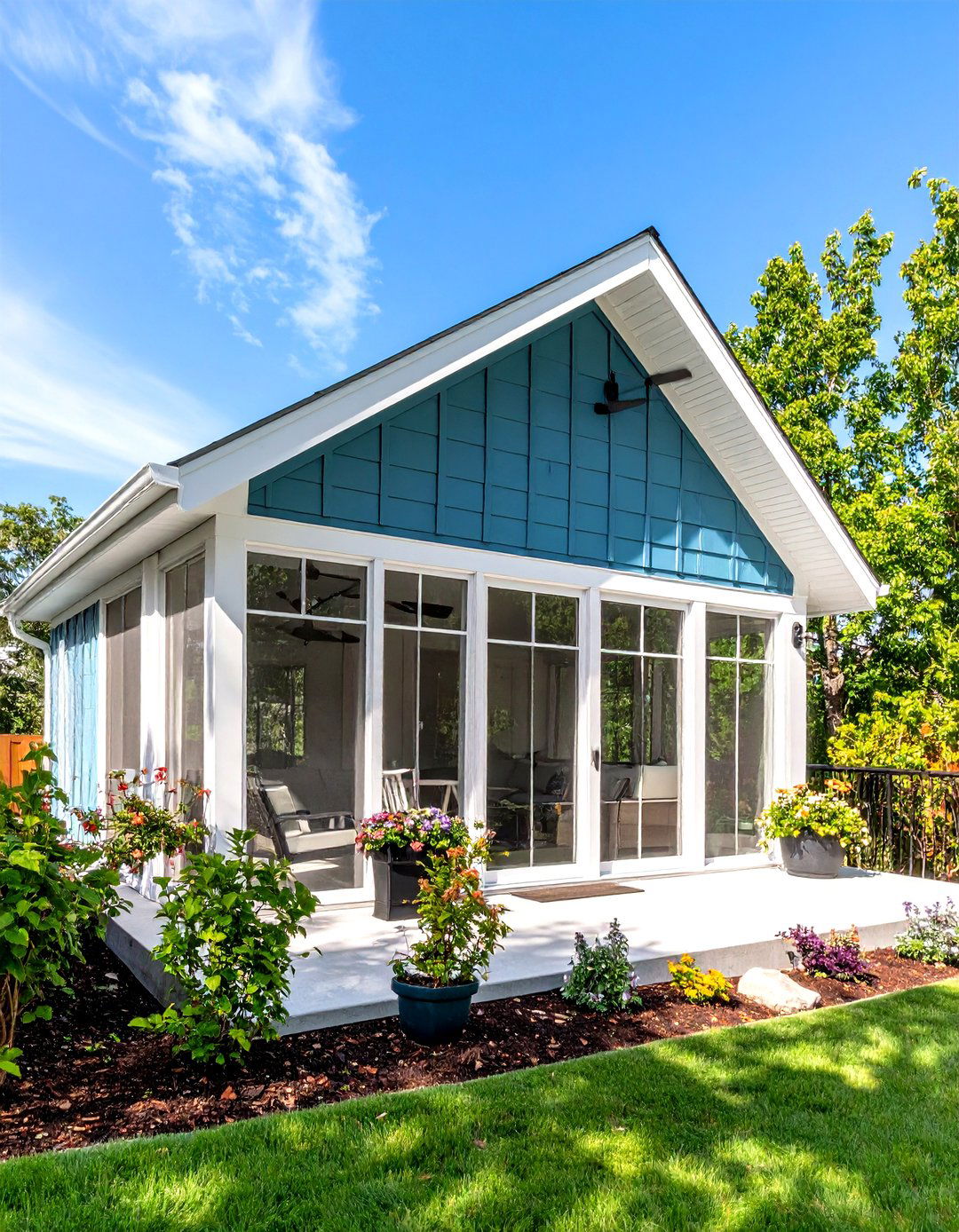
What transforms open patios into insect-free outdoor rooms while maintaining natural ventilation? A screened porch provides a breezy, bug-free environment to enjoy the outdoors. This screened room blends seamlessly with the home, providing an additional gable feature. Fine mesh screening within the gable framework creates enclosed spaces that maintain outdoor connections while providing pest protection. Strategic screen door placement ensures easy access while maintaining the enclosed environment. The screening can be removable for seasonal flexibility or permanent for year-round protection. Ceiling fans within the gable structure enhance air circulation while maintaining comfortable environments during warm weather. The enclosed nature allows for more refined furnishing options that wouldn't withstand direct weather exposure. This approach works particularly well in areas with significant insect populations where outdoor enjoyment requires protection. The gable structure provides framework for screening while maintaining architectural character consistent with traditional porch designs. Integrated lighting creates pleasant evening environments for dining or relaxation.
20. Solar Panel Integrated Gable Roof
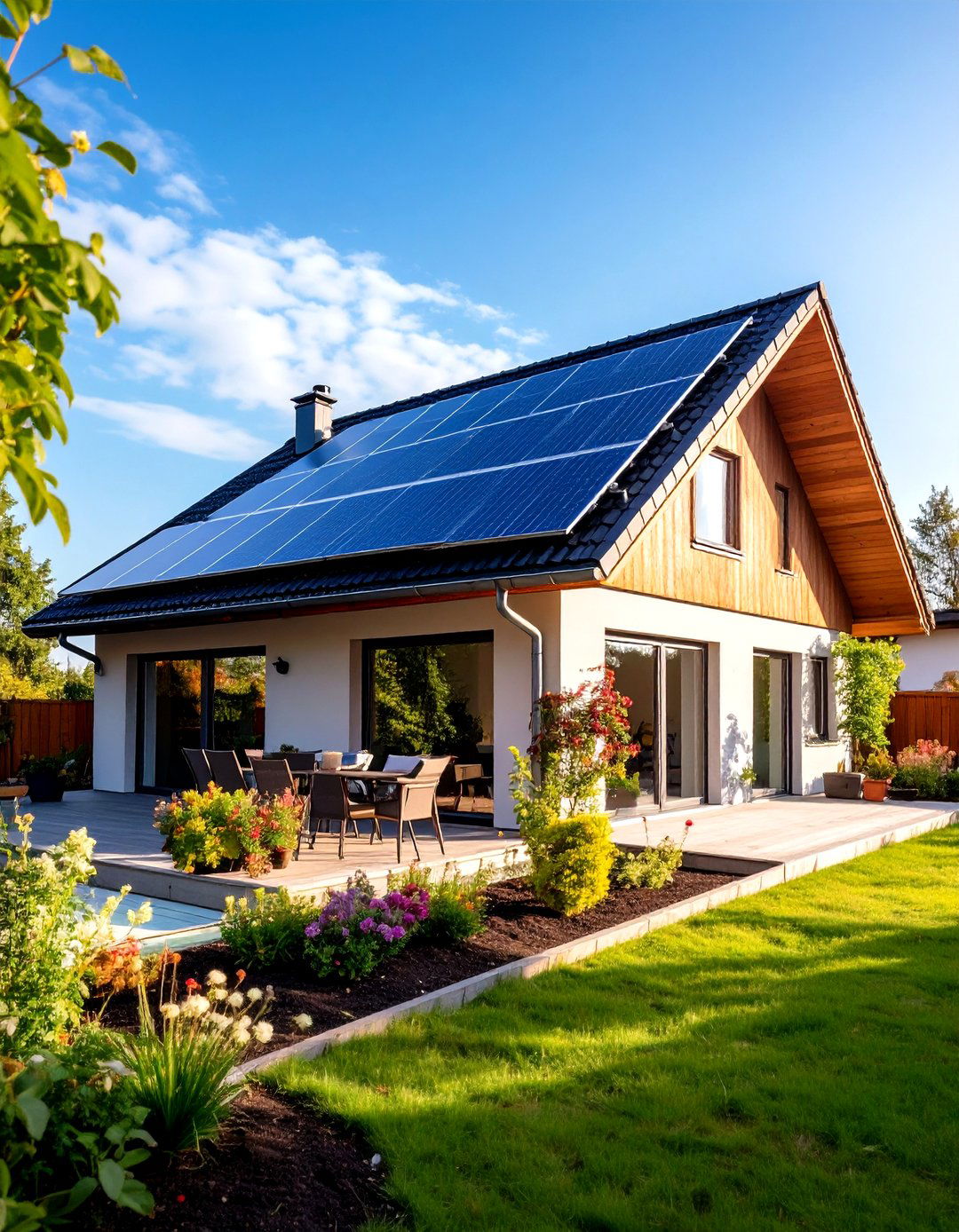
Can sustainable technology integration enhance rather than compromise architectural aesthetics? This forward-thinking design incorporates photovoltaic panels directly into the gable roof structure for clean energy generation. The solar panels can be integrated as roofing material or mounted on traditional materials depending on aesthetic preferences and performance requirements. The gable orientation can be optimized for solar exposure while maintaining architectural relationships to the main house. Battery storage systems and grid connections enable energy independence or net metering benefits. The sustainable approach appeals to environmentally conscious homeowners while potentially reducing operating costs. Modern solar panels offer various aesthetic options from traditional blue cells to black panels that blend with conventional roofing materials. The electrical integration requires professional installation while offering long-term energy benefits. This design demonstrates how functional requirements can drive architectural decisions while maintaining visual appeal and environmental responsibility.
21. Copper Accent Gable Details
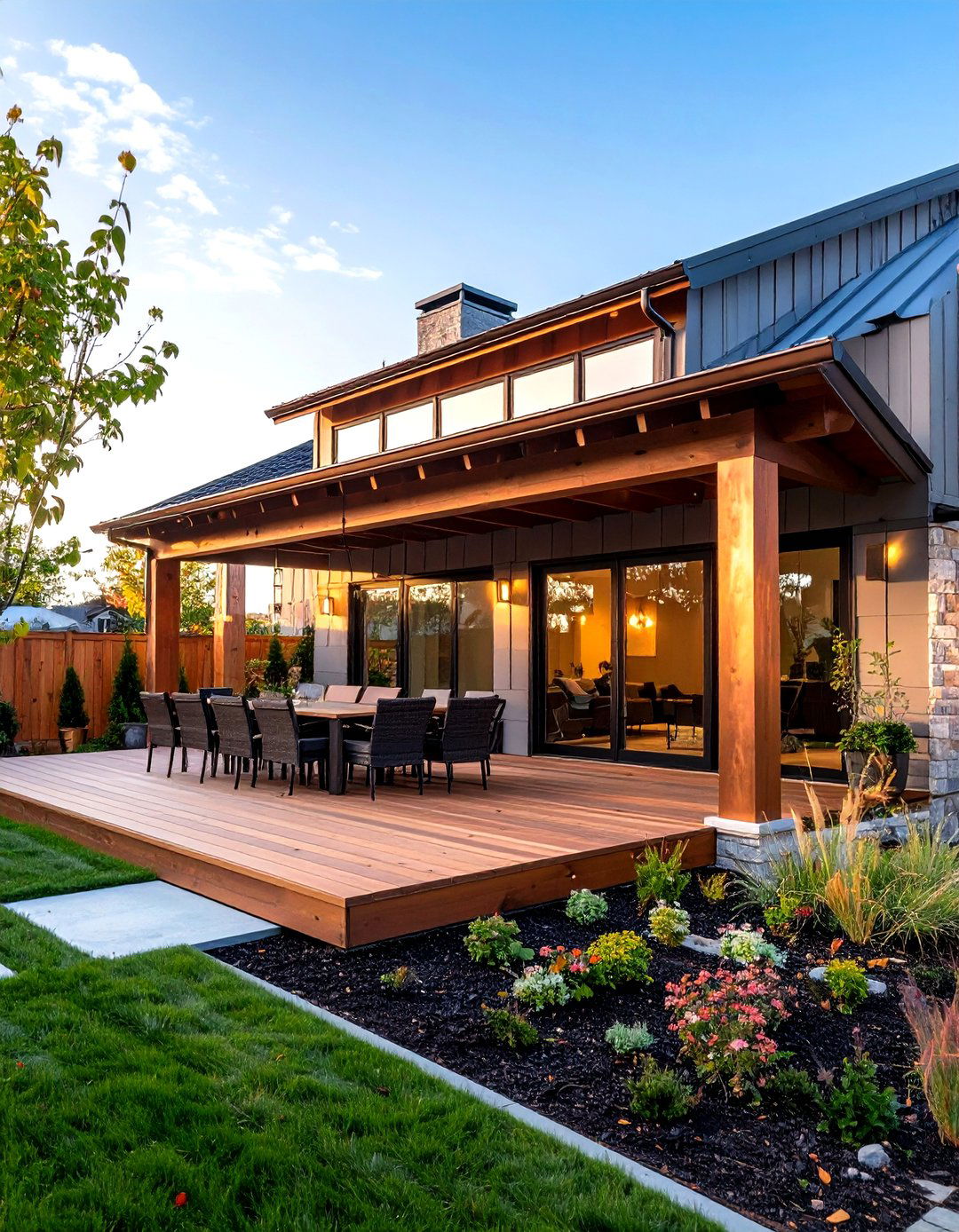
How do premium materials elevate basic structures into architectural focal points? Copper roofing, gutters, and trim elements create distinctive patina effects that age gracefully while providing superior weather resistance. The material's natural weathering process creates unique color variations from bright copper through various browns to eventual green patina. Strategic use of copper accents within larger gable structures creates visual interest without overwhelming budgets. The material works particularly well with stone, brick, or cedar siding where natural material combinations create rich textures. Copper's excellent forming characteristics enable complex shapes and custom details that enhance architectural character. The premium material signals quality construction while providing practical benefits like superior corrosion resistance and longevity. This approach works well where distinction from neighboring structures is desired while maintaining neighborhood character. The copper elements become more beautiful over time as natural patina develops, creating unique character that cannot be replicated artificially.
22. Fabric Tensioned Gable Canopy

What happens when traditional rigid construction meets flexible fabric technology? This innovative approach uses tensioned fabric membranes within gable frameworks to create lightweight, weather-resistant coverage. High-performance fabrics resist UV degradation, water penetration, and wind loads while maintaining elegant curved profiles impossible with rigid materials. The tension structure requires precise engineering to maintain proper fabric stress while accommodating thermal expansion and wind loads. Various fabric colors and patterns allow customization while maintaining the underlying gable geometry. The lightweight system reduces structural requirements compared to solid roofing while maintaining weather protection. This approach works well where building codes limit structural loads or where temporary/removable coverage is desired. The fabric elements can be replaced periodically to refresh appearance while maintaining the permanent gable framework. Modern fabric technology offers impressive durability and performance characteristics that make this approach increasingly viable for permanent installations.
23. Living Roof Gable Garden

Can patio roofs become productive garden spaces that enhance both function and environmental benefits? This sustainable approach incorporates extensive green roof systems within gable structures for plant growing and environmental benefits. The living roof requires specialized membrane systems, drainage layers, and growing medium designed for roof applications. Plant selection focuses on species adapted to roof conditions while providing desired aesthetic and functional benefits. The additional soil weight requires enhanced structural design while the green roof provides excellent insulation and storm water management. Maintenance access and irrigation systems ensure plant health while minimizing ongoing care requirements. This approach appeals to environmentally conscious homeowners while creating unique architectural features. The green roof moderates temperature extremes while reducing energy consumption for any enclosed spaces below. Various planting options from sedums to native grasses provide different aesthetic and maintenance characteristics. The living roof creates habitat for birds and beneficial insects while managing storm water runoff naturally.
24. Multi-Material Eclectic Gable Design
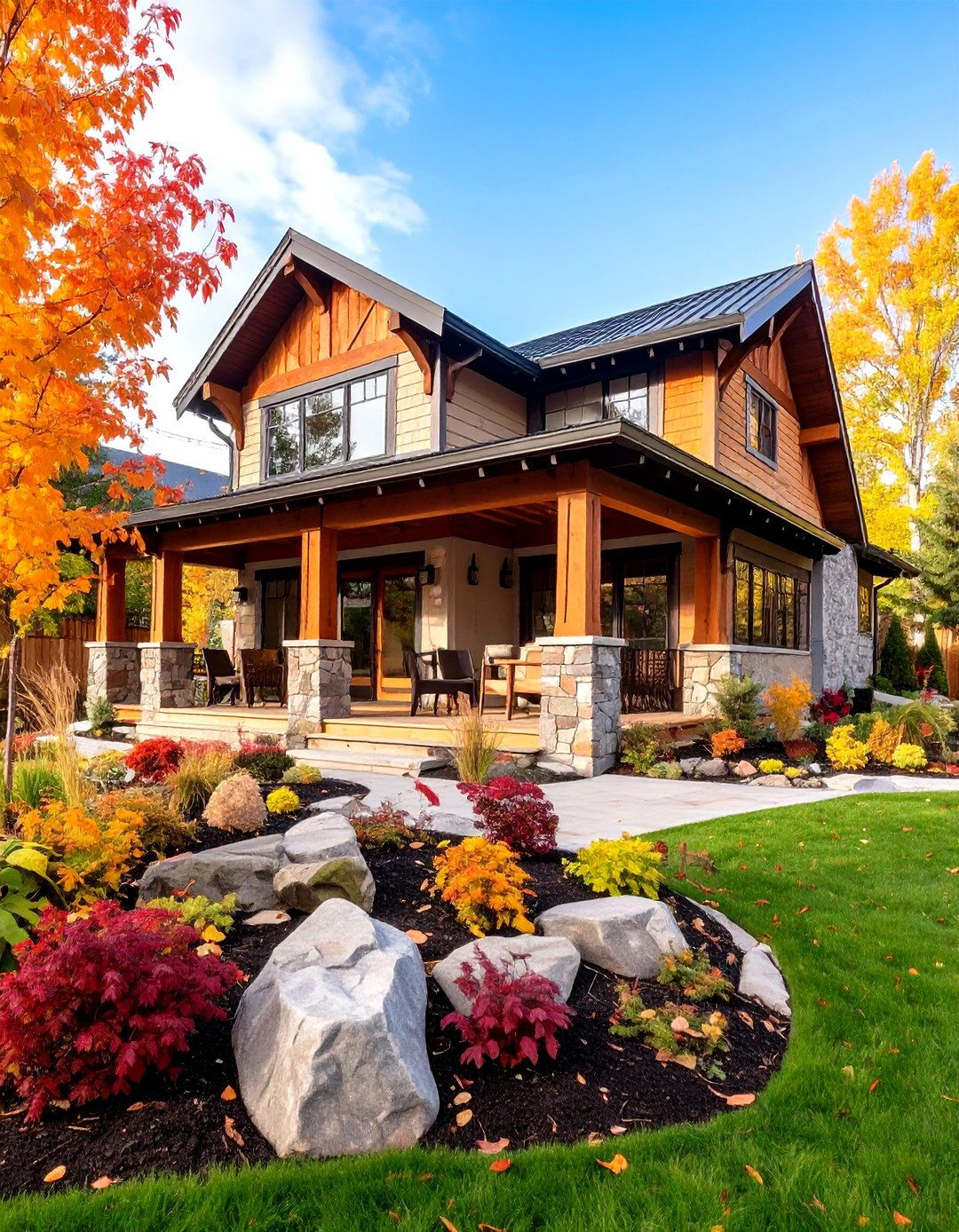
Why limit design expression to single materials when thoughtful combinations create richer architectural experiences? This creative approach combines various materials within single gable structures to create unique visual compositions. Perhaps stone columns support steel beams with cedar decking and metal roofing, each material contributing specific performance characteristics. The key lies in thoughtful proportions and transitions between materials that create harmony rather than chaos. Different materials can distinguish functional zones - stone for permanence, wood for warmth, metal for durability. The eclectic approach allows incorporation of salvaged or specialty materials that add unique character impossible with single-material systems. Careful attention to expansion joints and material compatibility ensures long-term performance despite the complex combinations. This design approach works well where unique character is desired while meeting specific performance requirements that no single material can satisfy. The result creates distinctive outdoor spaces that reflect personal taste while maintaining structural integrity and weather resistance.
Conclusion:
Gable patio roof designs offer unparalleled versatility in creating outdoor living spaces that seamlessly blend architectural beauty with functional performance. From traditional cedar beam construction to innovative retractable systems, these 24 design concepts demonstrate how classic gable forms can be adapted to meet contemporary lifestyle needs while respecting architectural heritage. Whether you're looking for a practical roofing solution or aiming to elevate your home's curb appeal, gable roofs are an excellent choice. The enduring popularity of gable designs stems from their fundamental advantages: excellent water drainage, superior structural integrity, and timeless aesthetic appeal that complements virtually any architectural style. Modern material innovations, sustainable technologies, and adaptive systems expand design possibilities while maintaining the essential characteristics that make gable roofs so appealing. Whether pursuing rustic charm through exposed timber construction or contemporary sophistication through sleek metal systems, gable patio roofs provide the architectural framework for creating outdoor environments that enhance both property value and quality of life throughout changing seasons and evolving family needs.




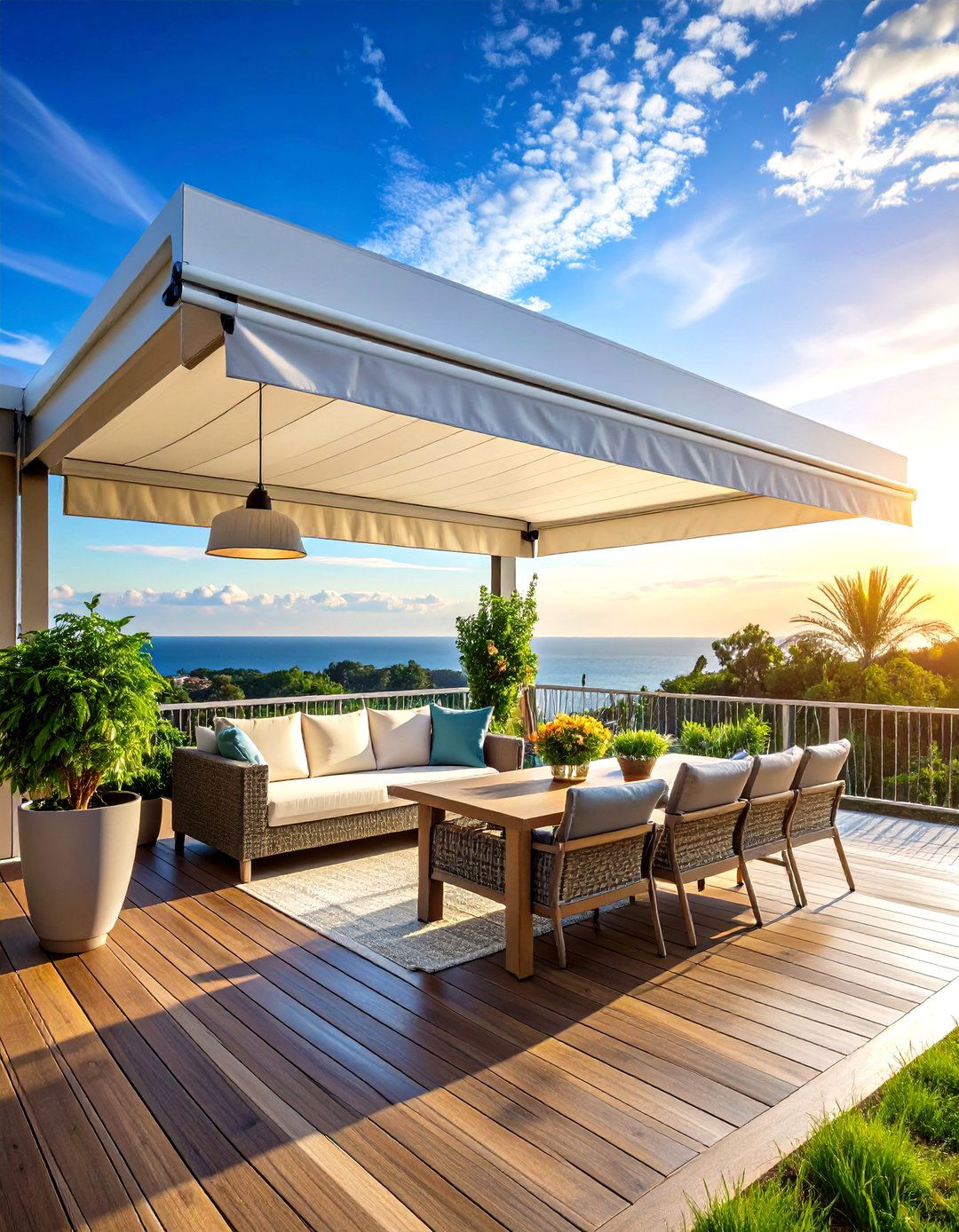
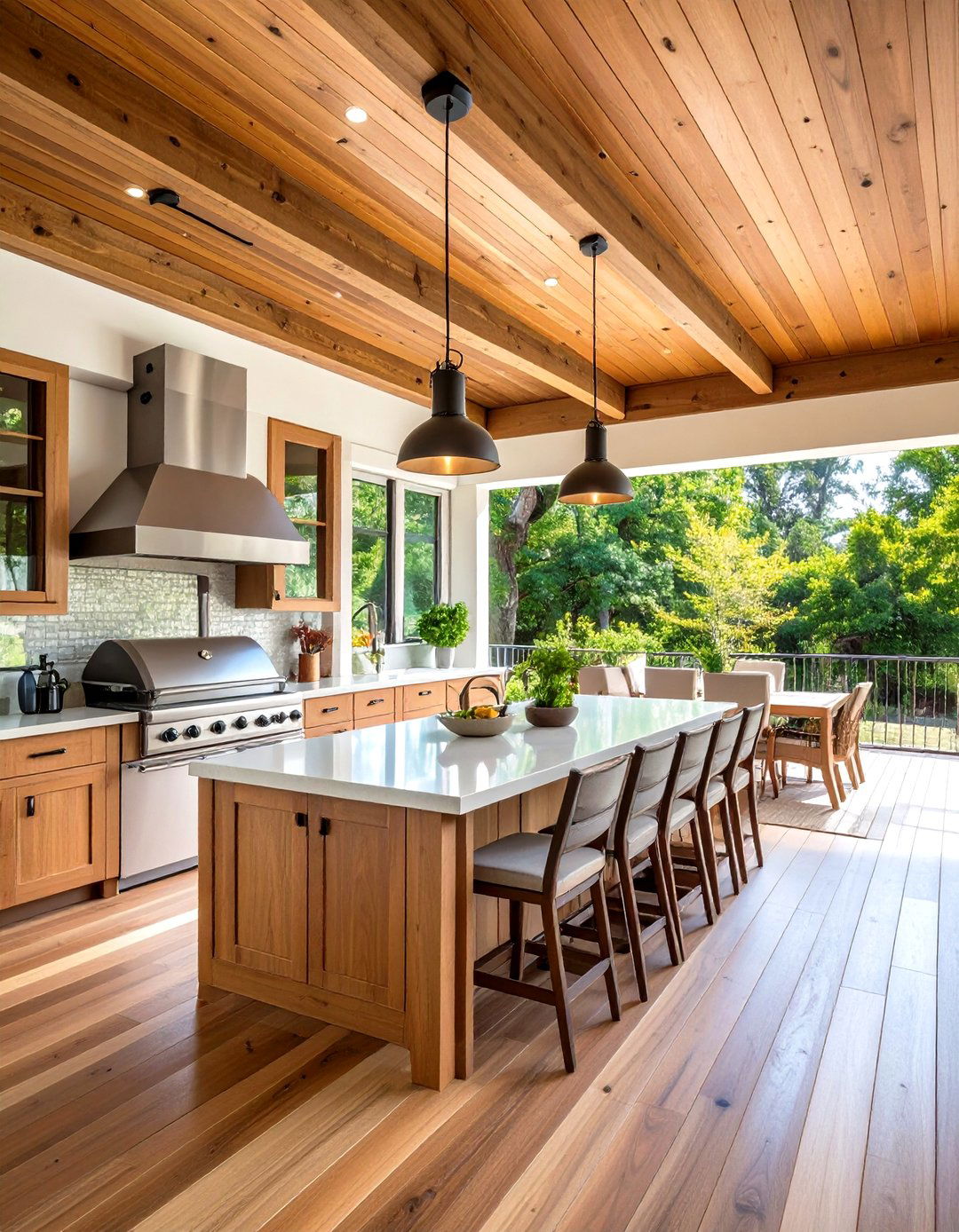
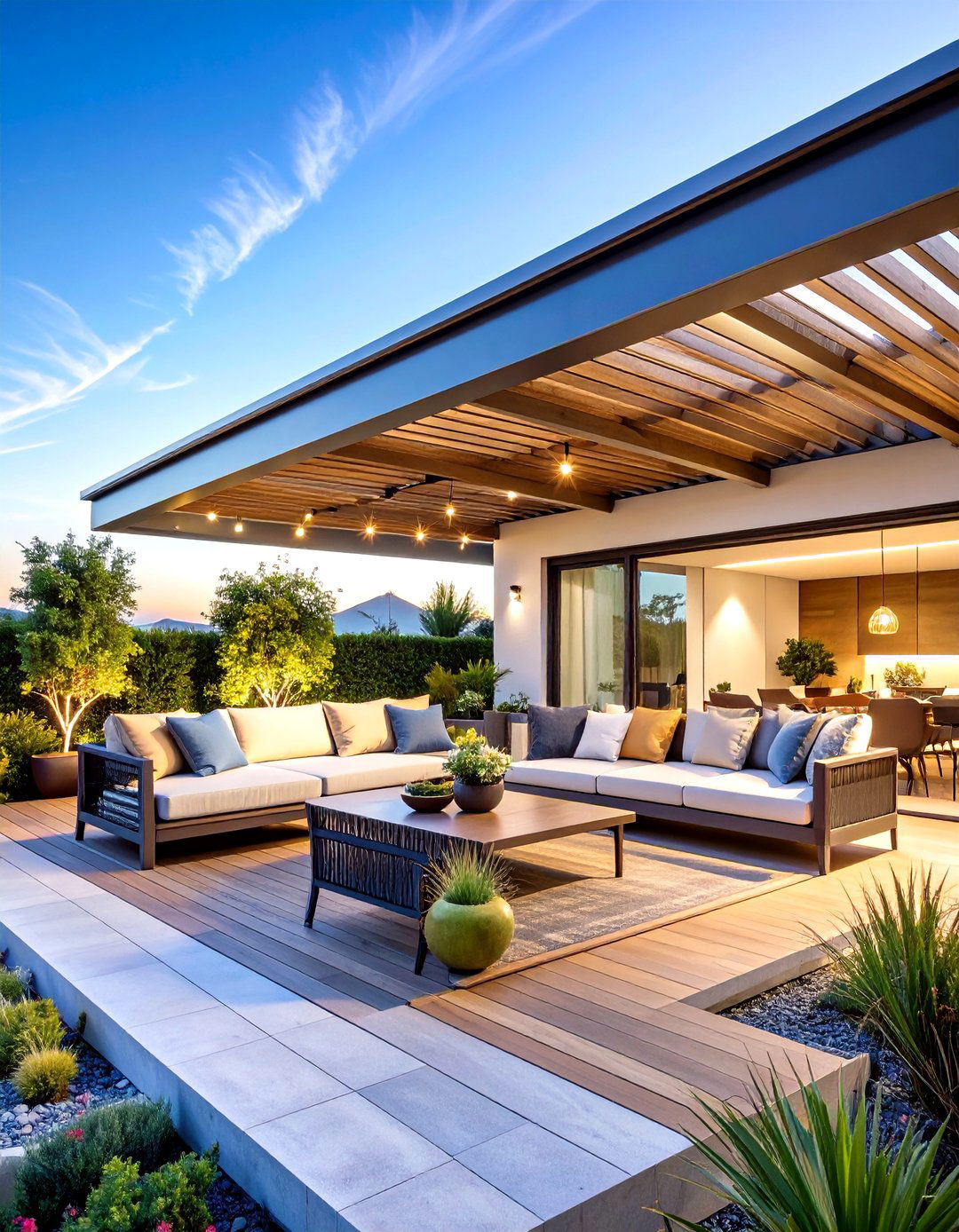

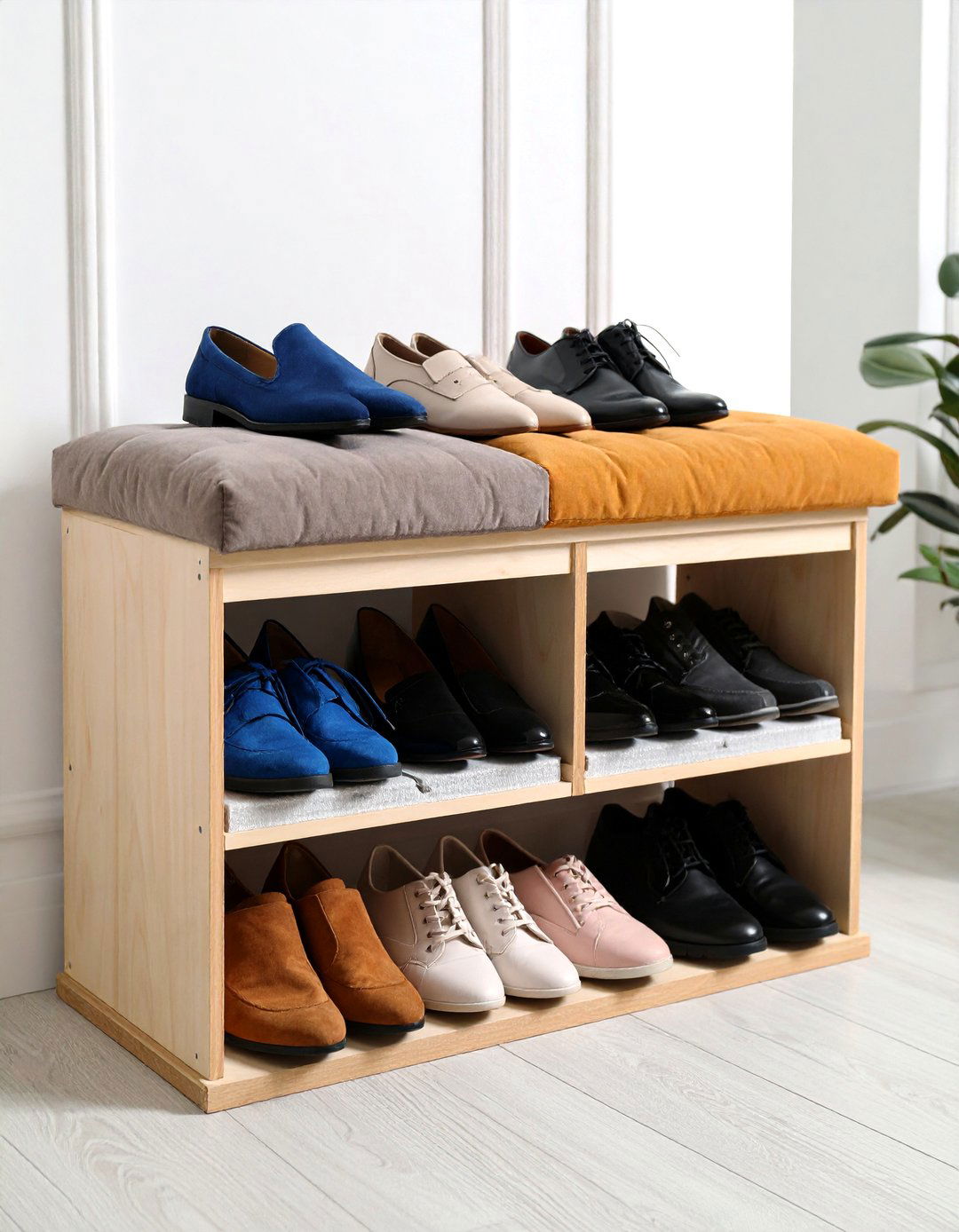
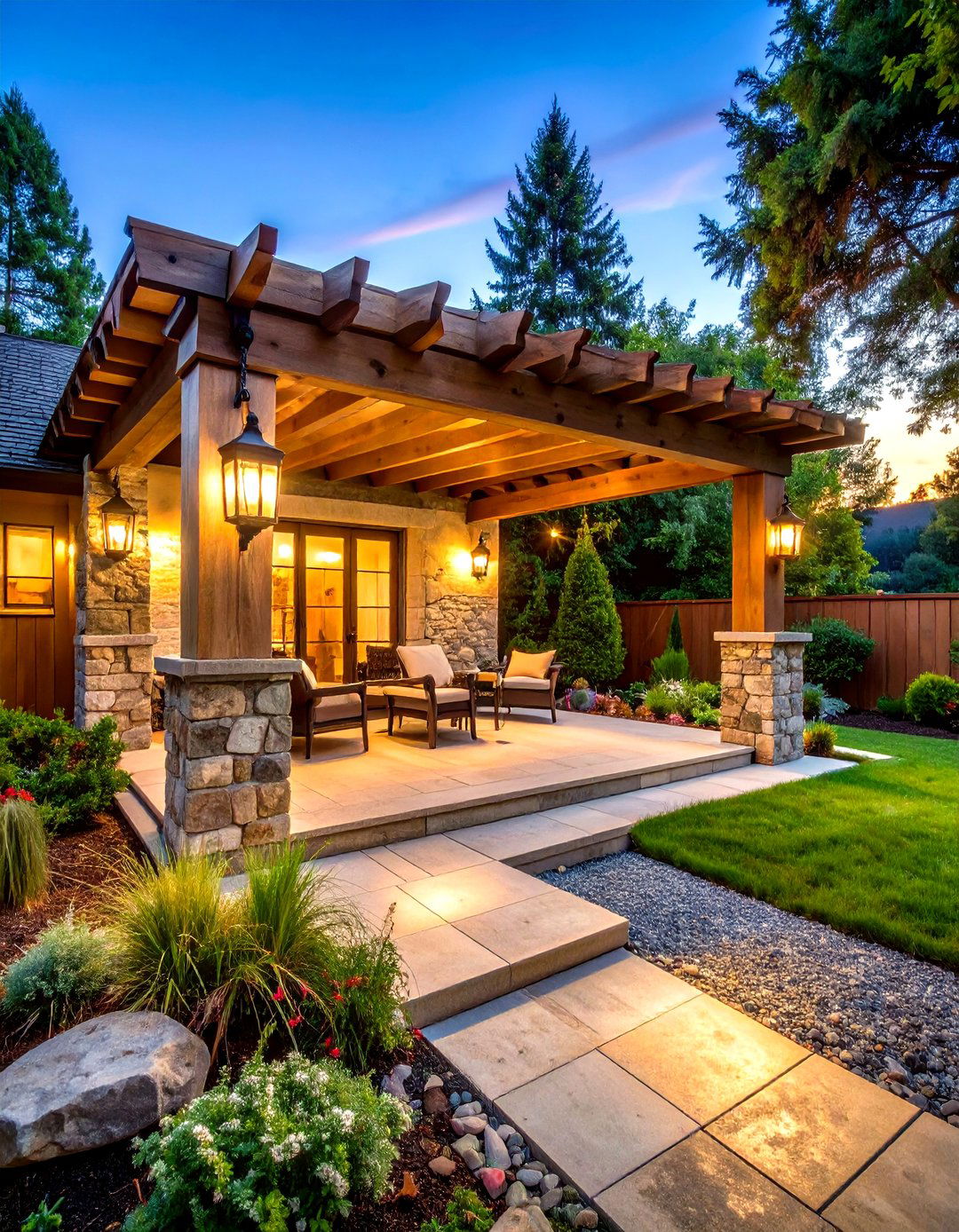

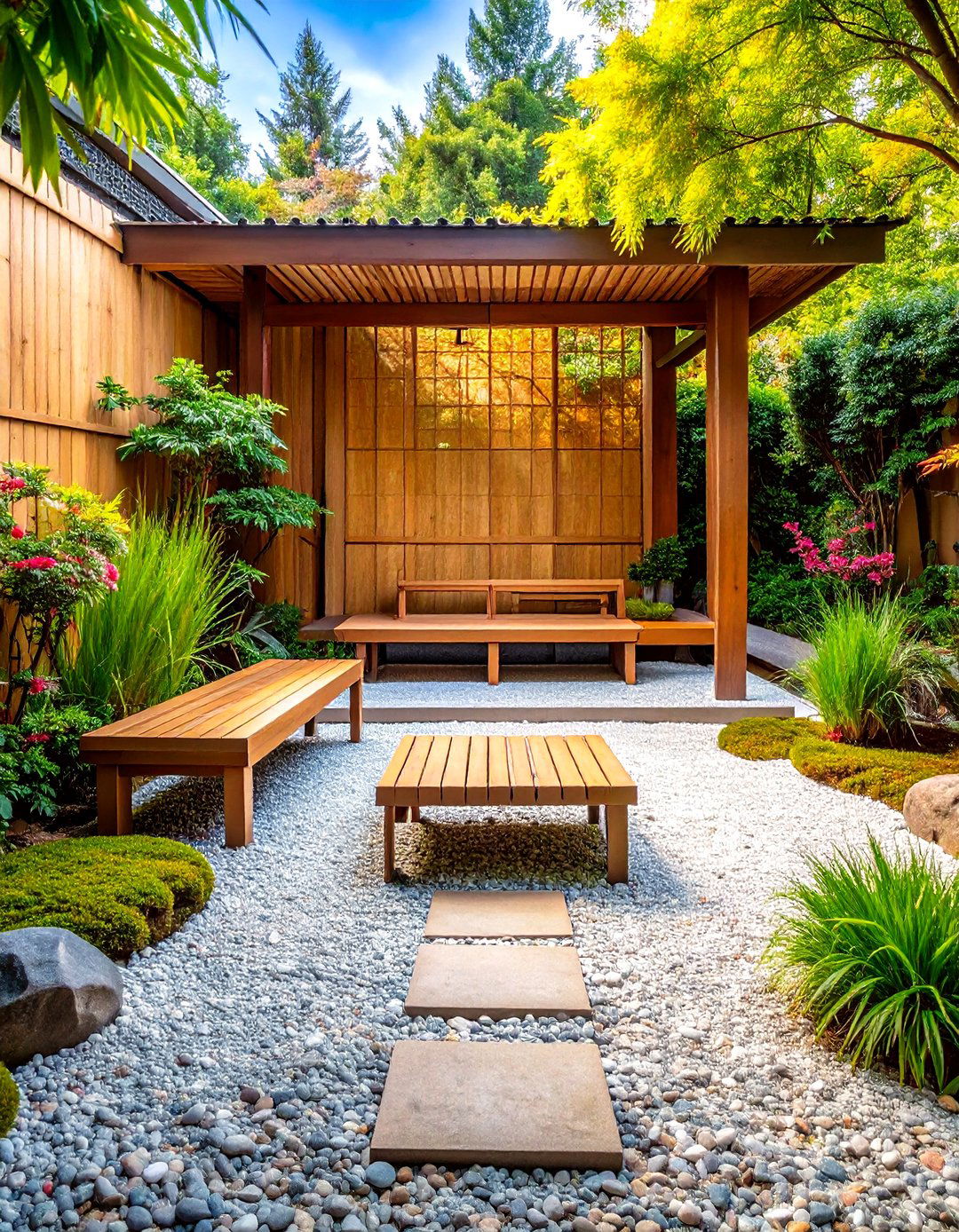
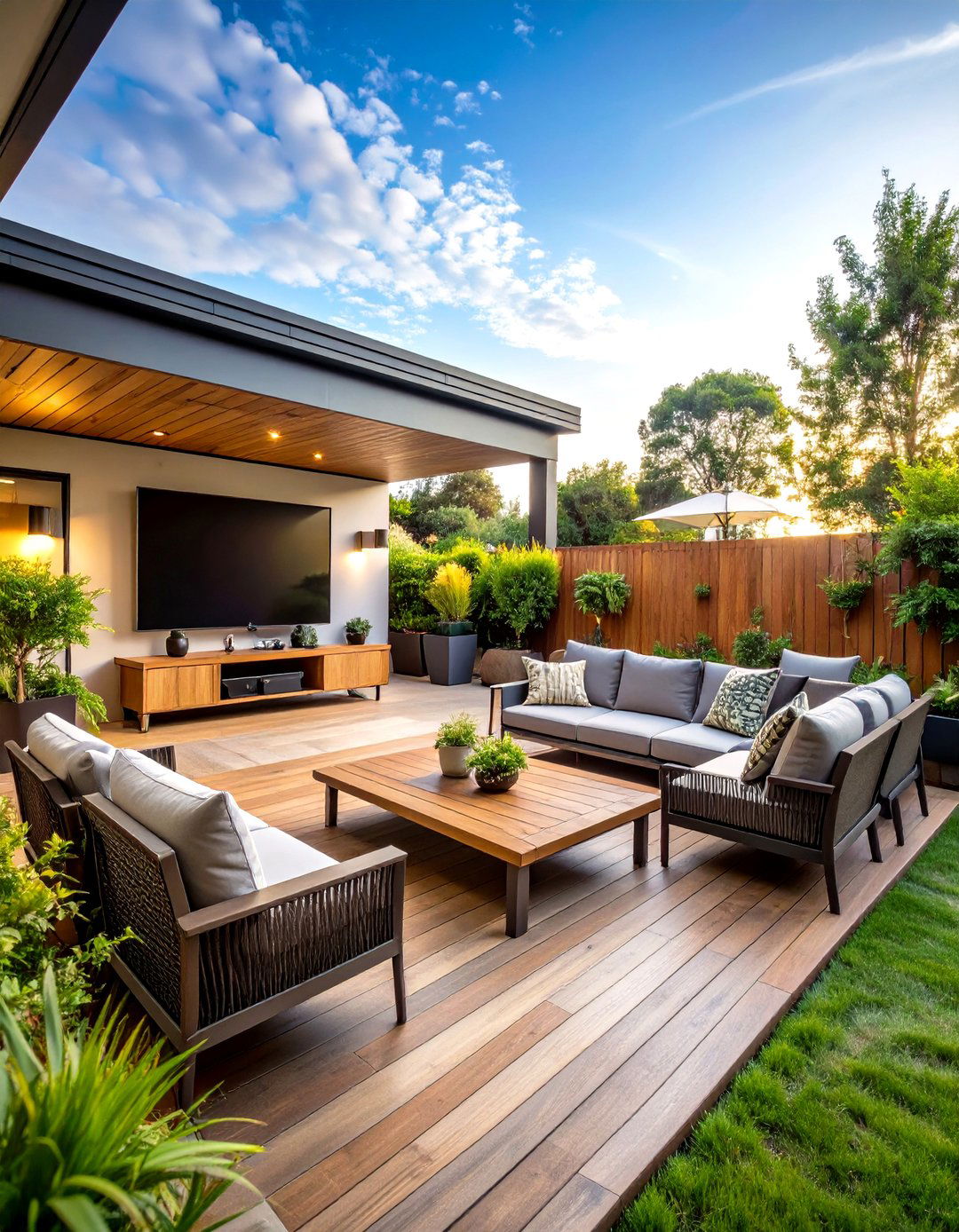


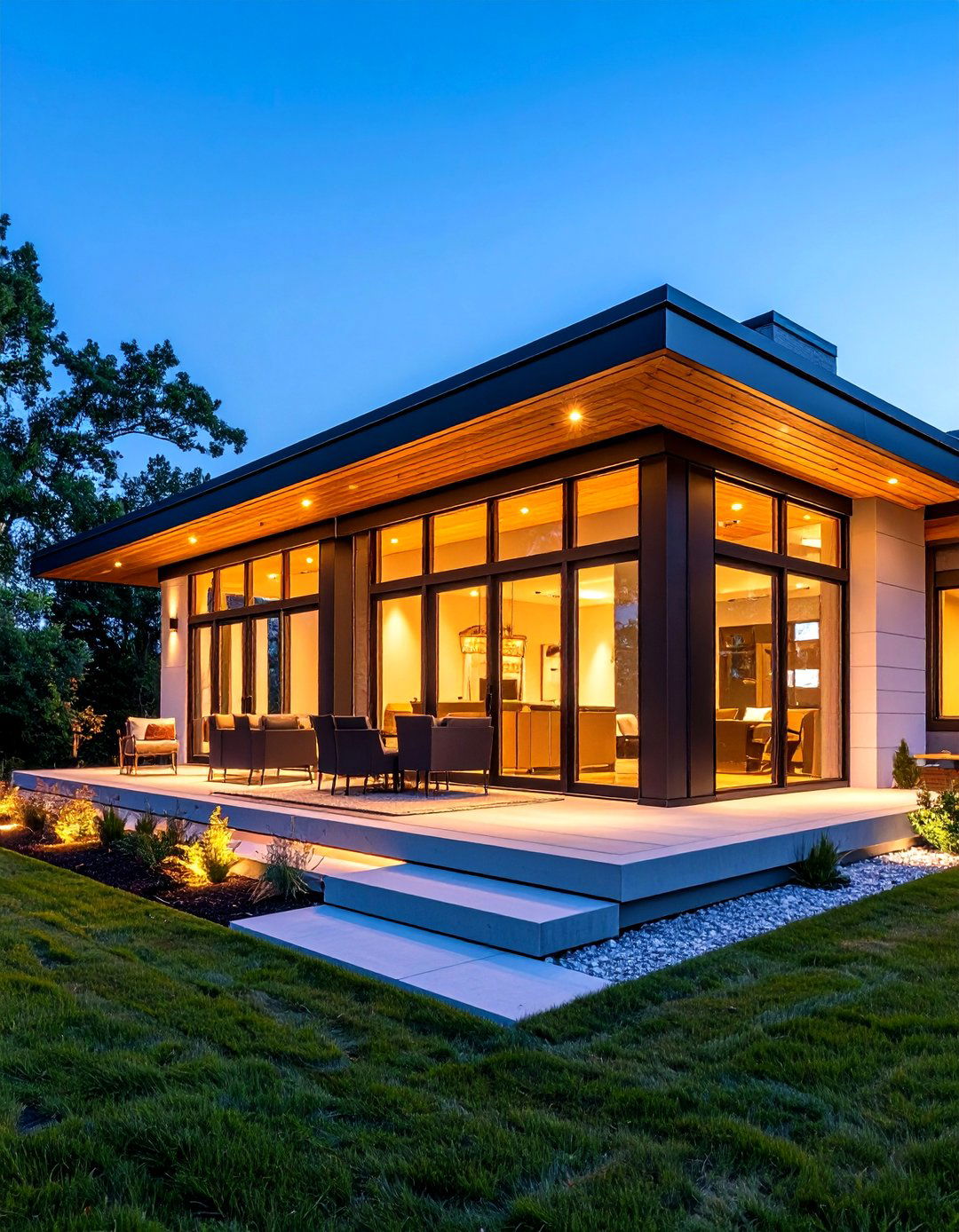
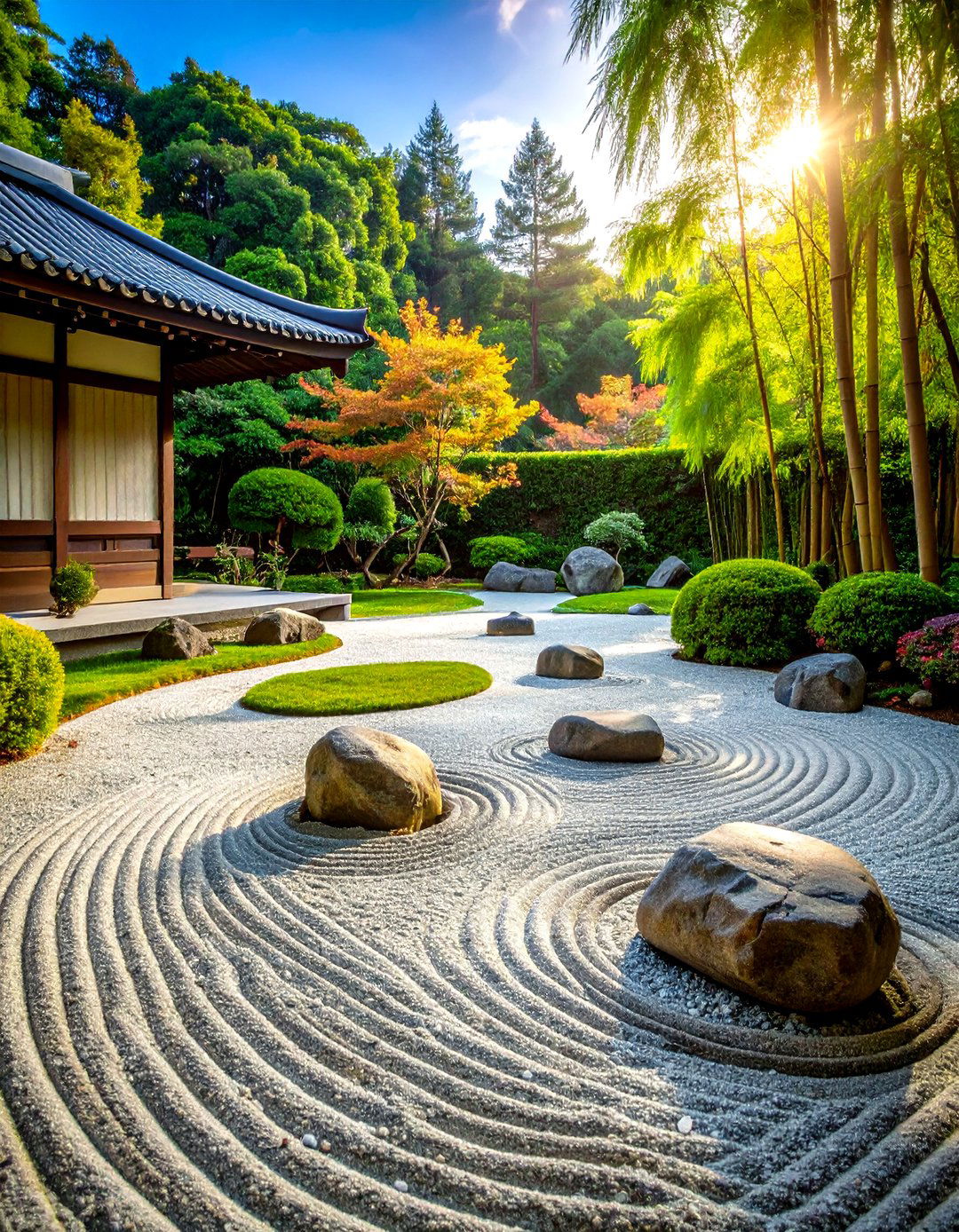
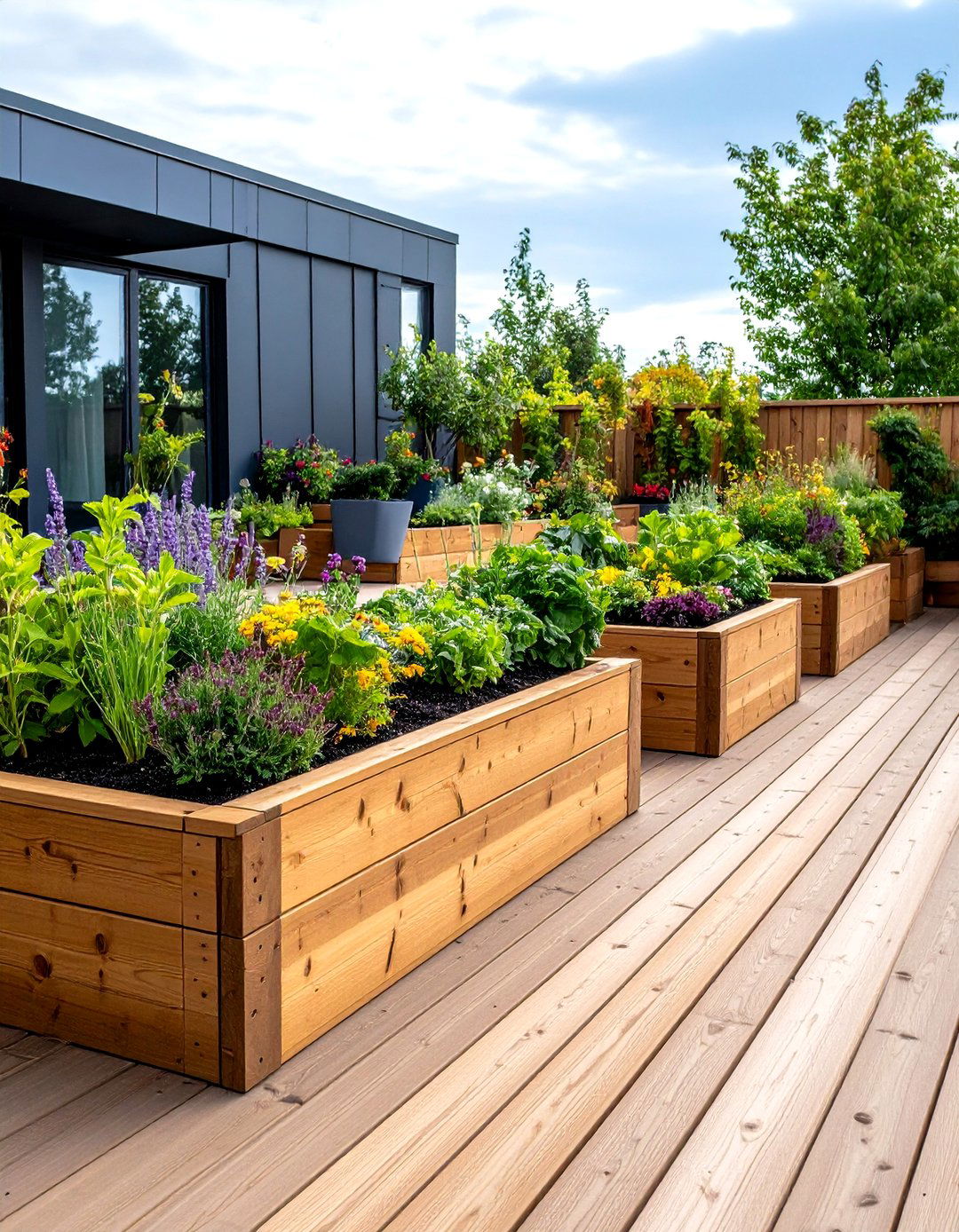
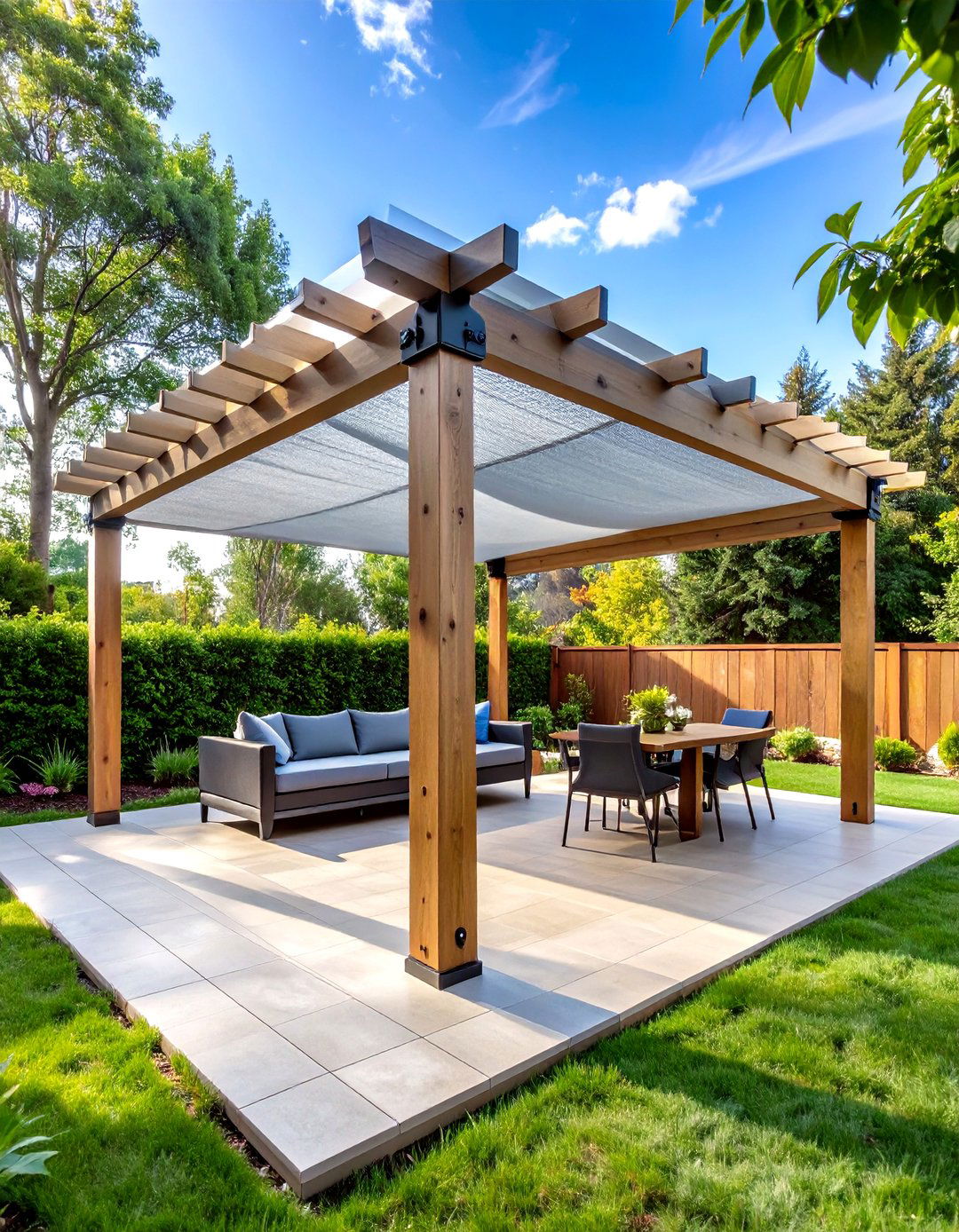

Leave a Reply